Teaching for the École nationale de la magistrature - ENM (French National School for the Judiciary)
⚖️Droit de la compliance (Compliance Law)
ComplianceTech® pour lire cette présentation en français ↗️ cliquer sur le drapeau français
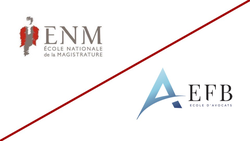
🌐follow Marie-Anne Frison-Roche on LinkedIn
🌐subscribe to the Newsletter MAFR Regulation, Compliance, Law
____
► Full Reference: F. Ancel & M.-A. Frison-Roche, Droit de la compliance (Compliance Law), École nationale de la magistrature - ENM (French National School for the Judiciary), in collaboration with the École de Formation professionnelle des Barreaux du ressort de la cour d'appel de Paris - EFB (Paris Bar School), Paris, February 1 and 2, 2024
This teaching is given in French.
____
____
► Presentation of the Teaching: The aim of this two-day conference is to enable judges and lawyers to grasp the issues, objectives and methods that define Compliance Law as it is practised in companies.
The speakers will illustrate the growing trend towards litigation, which is difficult to reconcile with the supranational dimension, or even indifference to territories, for example when disputes concern systemic climate or digital issues: the result is a renewal of the role of the judge and the role of lawyers.
This must be set against the renewal of the role and operation of companies themselves.
This is analysed from the perspective of Civil Law, in particular Contract Law and Liability Law. Company Law and Criminal Law are also addressed, as well as the way in which the legal system now integrates governance, regulation, climate and digital issues and the smooth operation of financial markets through Compliance techniques.
____
► Organisation of the Teaching: This conference is divided into two parts.
The first day is designed as a presentation of the major themes through which Compliance Law crosses the branches of traditional Law. The speakers will be professors of Law who will successively summarise the branches of Law and put into perspective the way in which Compliance imperatives give rise to new situations, new difficulties and new solutions.
This enables the second day to focus on practical and topical issues and to debate controversial questions between people of different sensibilities. The participants tend to be judges, members of regulatory authorities, lawyers, members of associations and so on.
____
► Enrolment procedure: The course is open to all judicial and consular magistrates, as well as lawyers.
Registrations can be made directly with the ENM or with the EFB.
____
► Speakers :
🎤François Ancel, Judge at the Première Chambre civile de la Cour de cassation (First Civil Chamber of the French Court of cassation)
🎤Thomas Baudesson, Attorney at the Paris Bar, Partner at Clifford Chance
🎤Guillaume Beaussonie, Full Professor at Toulouse 1 Capitole University
🎤Jacques Boulard, Premier Président de la Cour d’appel de Paris (First President of the Paris Court of Appeal)
🎤Marie Caffin-Moi, Full Professor at Paris Panthéon-Assas University
🎤Malik Chapuis, Judge at the Tribunal judiciaire de Paris (Paris First Instance Civil Court)
🎤Lucie Chatelain, Advocacy and Litigation Manager - Civil Liability of Parent Companies, Sherpa
🎤Jean-Benoît Devauges, Directeur Juridique, Ethique et Gouvernance des entreprises (Legal, Ethics and enterprises governance Director), MEDEF
🎤Marie-Anne Frison-Roche, Professor of Regulatory and Compliance Law, Director of the Journal of Regulation & Compliance (JoRC)
🎤Arnaud Gossement, Attorney at the Paris Bar, Partner at Gossement Avocats
🎤Thibault Goujon-Bethan, Full Professor at Jean Moulin Lyon 3 University
🎤Christophe Ingrain, Attorney at the Paris Bar, Partner at Darrois Villey Maillot Brochier
🎤Isabelle Jegouzo, Director of the Agence française anticorruption - AFA (French Anti-Corruption Agency)
🎤Anne-Valérie Le Fur, Full Professor at Versailles Saint-Quentin-en-Yvelines University
🎤Charlotte Michon, Attorney at the Paris Bar, partner at Charlotte Michon Avocat
🎤Jean-Baptiste Racine, Full Professor at Paris Panthéon-Assas University
🎤 Jean-Christophe Roda, Full Professor at Jean-Moulin Lyon 3 University
🎤Jérôme Simon, 1er Vice-Procureur Financier (First Financial Vice-Prosecutor)
____
🧮read below the programme put together and organised by François Ancel and Marie-Anne Frison-Roche, as well as the reports of each presentation⤵️
Droit de la Compliance
(Compliance Law)
under the scientific direction of
François Ancel & Marie-Anne Frison-Roche
Thursday 1st February 2024
LA NAISSANCE DU DROIT DE LA COMPLIANCE
ET LA TRANSFORMATION DU SYSTÈME JURIDIQUE PAR CELUI-CI
(THE BIRTH OF COMPLIANCE LAW
AND THE RESULTING TRANSFORMATION OF THE LEGAL SYSTEM)
09h15-09h30. Ouverture et présentation de la session (Opening and presentation of the session), by François Ancel and Marie-Anne Frison-Roche, Session Directors
09h30-10h15. Droit de la compliance : tour d’horizon (Compliance Law: Overview), by Marie-Anne Frison-Roche, Professor of Regulatory and Compliance Law, Director of the Journal of Regulation & Compliance (JoRC)
- I have pointed out that Compliance Law is mysterious in itself, because it constitutes a branch of Law that is still in the making, that its presence and power are felt, but that it is difficult to grasp it. But it needs to be, because it deals with the most important, even the most dramatic events, and has the greatest ambitions. Magistrates and lawyers must also "make the effort" to take part in the "adventure of Compliance Law", because it affects, even overturns, all areas of Law, and because Prosecutors, Judges and Lawyers are playing a growing role in it.
- Since the purpose of this conference is to introduce the two days of a colloquium designed for judges and lawyers, it is content to provide an 'overview', so that we do not get lost in all the changing, multiple and sprawling regulations, global measures and political ambitions that permeate this new branch of Law.
- This is why, without going into any of the subjects, the aim here is to open up 4 ways of entering into what constitutes a branch of Law that is emerging before our very eyes:
- 1. Understanding Compliance Law through "regulations"
- 2. Understanding Compliance Law through "tools"
- 3. Understanding Compliance Law through "methods"
- 4. Understanding Compliance Law through "goals"
- The 4 access routes are legitimate because the 4 dimensions are articulated in Positive Law.
- But the more Positive Law consolidates, the more normativity through goals emerges.
This goal-based normativity makes it possible to distinguish Compliance Law from the mechanism of 'conformity' with regulations, which is a tool of Compliance Systems, but which is only that. This teleological perspective gives the rules normativity, even uniqueness and simplicity, without which the whole is not humanly controllable. The aims are common to all the branches of Law concerned (contract, liability, criminal, procedural, corporate, labour, environmental, international) and also make Compliance humanistic, 'conformity' being no more than obedience. - These are Monumental Goals, and Europe has achieved them more and better than any other region in the world.
🌐consult the report of this speech made by Marie-Anne Frison-Roche on LinkedIn, which links to a general presentation of the event, which in turn links to the reports of each speech (in French)
🔲consult the slides that support this speech, 🌐also published on LinkedIn (in French)
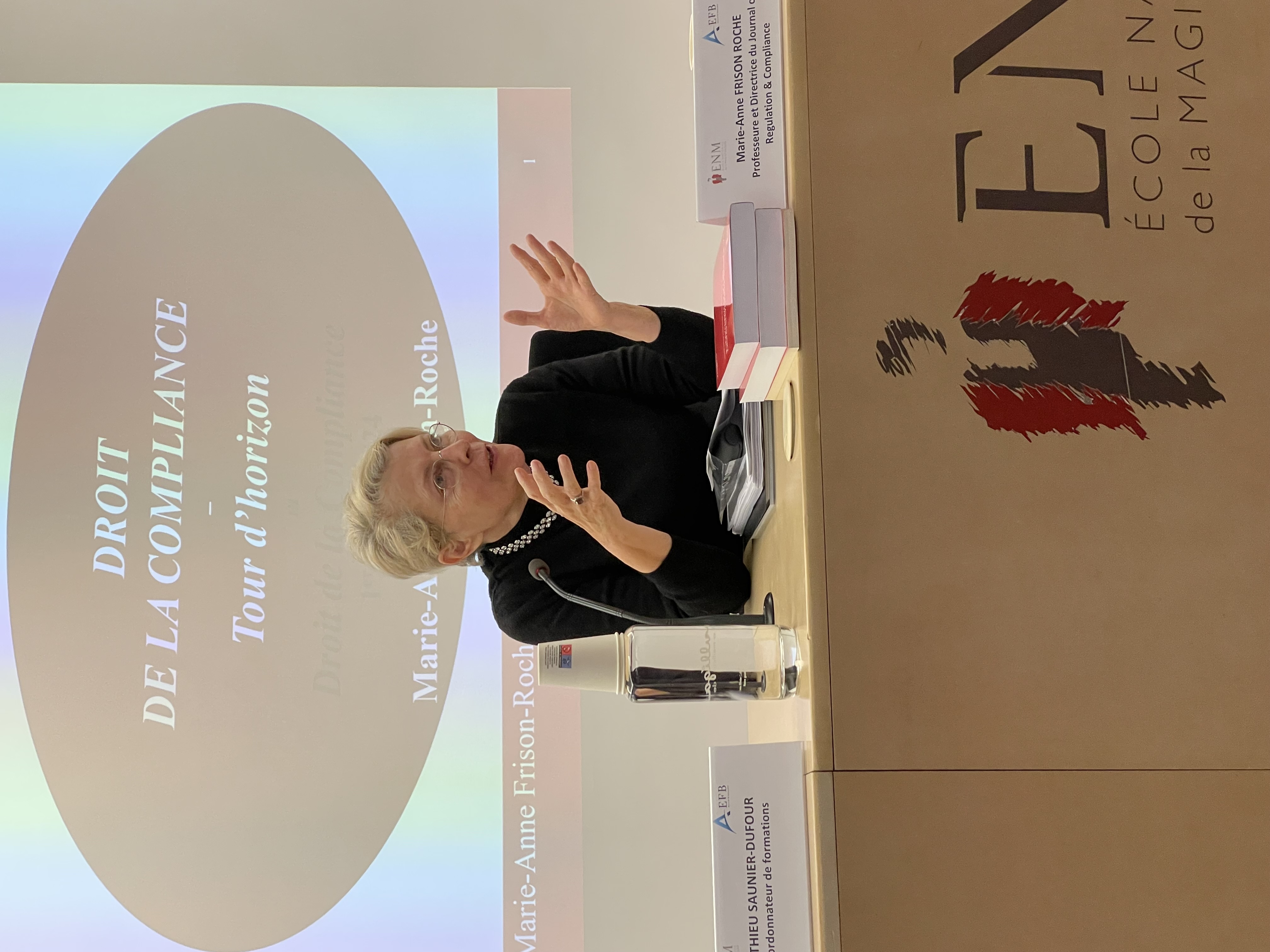
10h15-11h15. L’imprégnation des branches du Droit par les mécanismes de compliance : la gouvernance des entreprises et le marché financier (The impact of compliance mechanisms on branches of Law: corporate governance and financial market), by Anne-Valérie Le Fur, Full Professor at Versailles Saint-Quentin-en-Yvelines University
- She showed that the rights and responsibilities of each individual within companies are being redefined under the impetus of Compliance Law, born of the financial markets, and to which the Vigilance mechanism is giving new impetus.
- In this respect, she showed that Company Law texts, in particular those on non-financial information (CSRD) and the forthcoming directive on vigilance (CS3D) are part of the same movement, stemming from the same crucible that is Compliance Law. Indeed, texts and case law reason in a teleological way, the Monumental Goals of Compliance leading to analyse and apply in a different way the responsibility of partners, managers and directors, who only have an obligation of means, but which has impregnated with ethics.
- The result is a new concept of the company's interest, with the inclusion in Positive Law of the "raison d'être" and the mission by the French Pacte law: the social dimension enters the company, even if it is not listed. Directors may be held liable by a third party if they have not taken steps to prevent the risk of corruption.
- This creates two circles. The first circle is made up of managers, who must prove that they have implemented compliance measures. The second circle is made up of "stakeholders", one of the current difficulties being that the definitions of these vary according to the more or less flexible texts, in particular ISO standards, codes or the CSRD.
- In any case, the trend is towards greater responsibility on the part of directors towards third parties, particularly as legal personality is weakened and concepts such as sustainability and the value chain emerge. She emphasised that companies, driven by their "raison d'être", are participating in this very profound movement expressed by Compliance, and are thus showing the part they are playing in the future.
🌐consult the report of this speech made by Marie-Anne Frison-Roche on LinkedIn, which links to a general presentation of the event, which in turn links to the reports of each speech (in French)
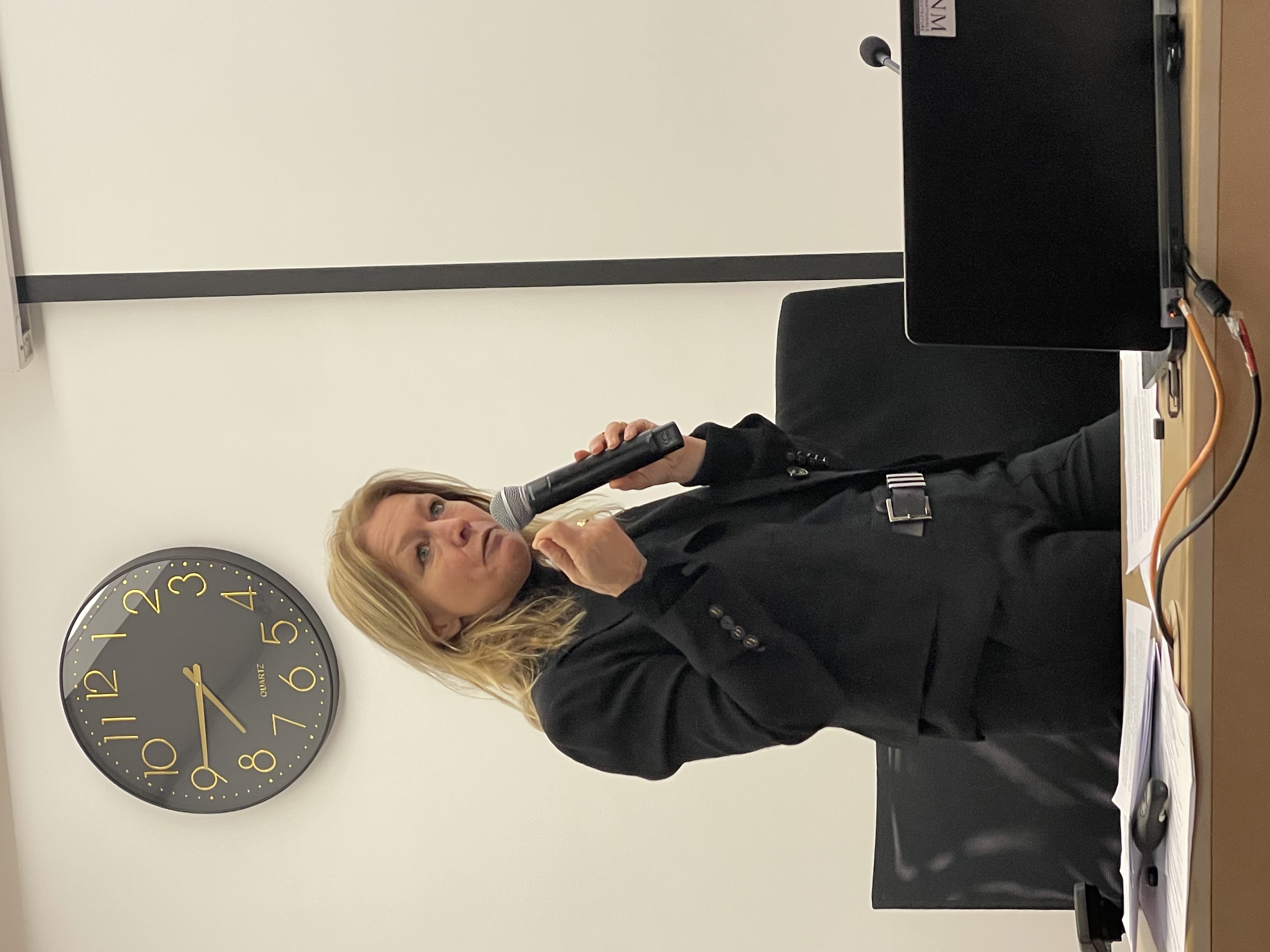
11h15-11h30. Pause (Break)
11h30-12h30. L’imprégnation des branches du Droit par les mécanismes de compliance : la responsabilité (The impact of compliance mechanisms on branches of Law: liability), by Marie-Anne Frison-Roche, Professor of Regulatory and Compliance Law, Director of the Journal of Regulation & Compliance (JoRC)
- I pointed out that Compliance Law places Responsibility at its heart, to the extent that it is difficult to restrict the subject, even though it excludes sanctions, both criminal and administrative, and contracts, which are directly concerned, as well as the action of regulators.
- If we confine ourselves to Civil Liability, we find a multitude of difficulties and perspectives, simply by looking at the liabilities attached to each Compliance regulation (GDPR, anti-corruption, Vigilance, anti-money laundering, etc.). However, the triptych of liability remains unchanged: operative event - damage - causation, the need for which has been reiterated by the Conseil constitutionnel (French Constitutional Council), the evolution is more in the evidentiary field.
- If we look beyond these regulations, we can see "points of contact" between these "special liabilities" and the development of Ordinary Liability Law, particularly through case law.
- In this movement launched by Compliance Law, whose normative anchor is in the Monumental Goals, leading the judge to a teleological application of texts but also of contracts, it is essential to preserve, as the texts do, the principle of freedom, which is common to Compliance and Liability .
- The articulation between the two reveals:
- the movement from an Ex Post liability to an Ex Ante responsibility
- the movement from a Liability to an Accountability
- This can only be achieved through alliances, the hallmark of which will be the transformation of the role of the judge and of procedure.
🌐consult the report of this speech made by Marie-Anne Frison-Roche on LinkedIn, which links to a general presentation of the event, which in turn links to the reports of each speech (in French)
🔲consult the slides that support this speech, 🌐also published on LinkedIn (in French)
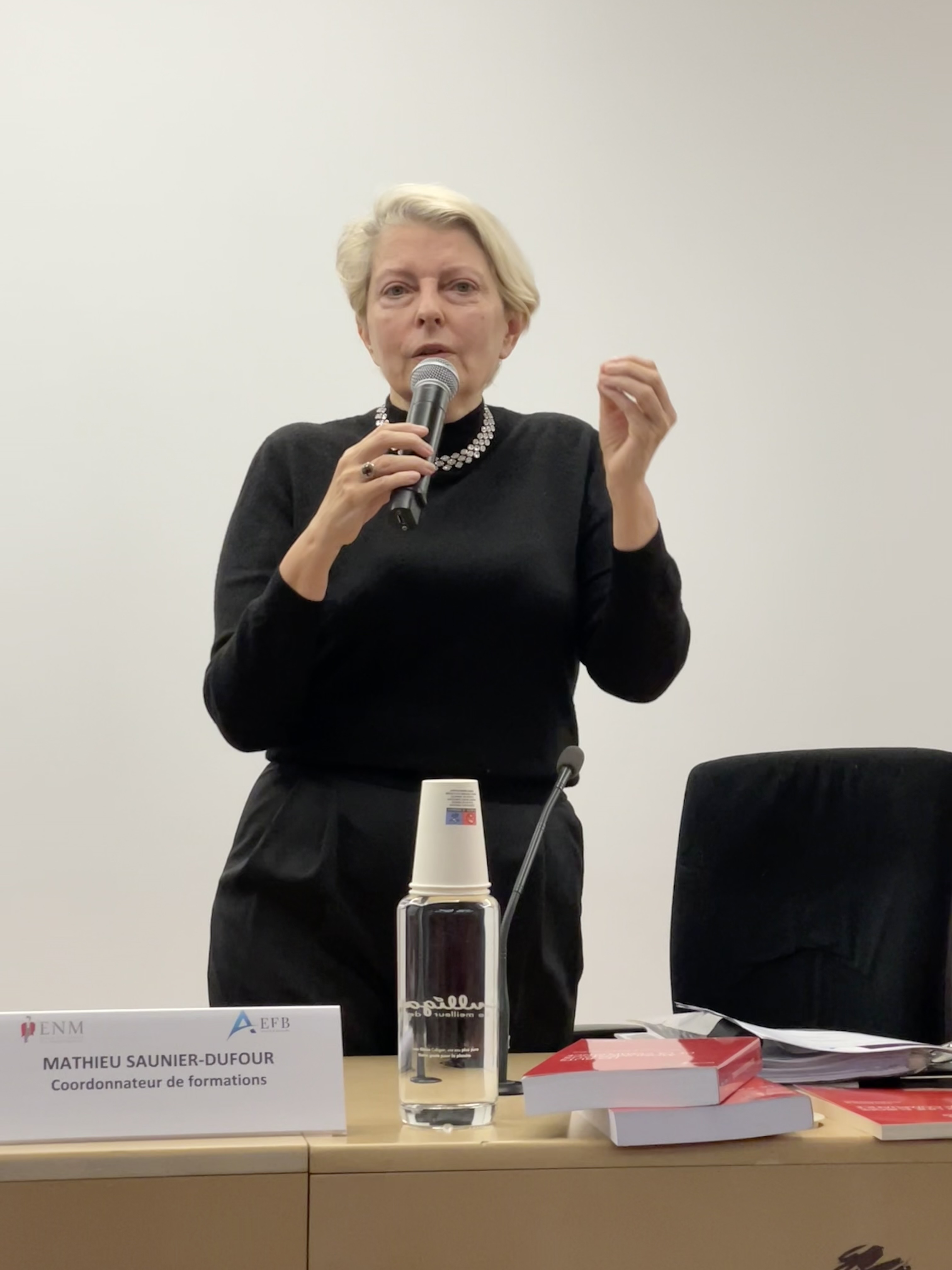
12h30-14h00. Pause déjeuner (Lunch break)
14h00-15h00. L’imprégnation des branches du droit par les mécanismes de compliance : le contrat (The impact of compliance mechanisms on branches of Law: contract), by Marie Caffin-Moi, Full Professor at Paris Panthéon-Assas University
- She showed that contracts are increasingly present in Compliance Law, the latter no longer being what is only expressed by laws of public order, while the contract would only carry the private interests of two particular parties.
- The speaker showed how, in practical terms, contracts are being used more and more every day as an instrument for disseminating Compliance, with Vigilance being an example of this, texts encouraging companies to do so, and the CS3D putting "the contract in the limelight" by setting up "contractual cascades", with the contract acting both on the surface and in depth.
- But the contract must not be a means of restricting liability, and there are points of "friction" between Contract and Compliance.
- Firstly, because regulations and even case law oblige companies to contract, for example with tier 2 suppliers, which is an infringement of the freedom not to contract.
- In addition, Compliance Monumental Goals institutionalise a contractual relationship which may be unbalanced, or even give rise to unfair competition if one company complies and the other does not, Compliance also conferring exorbitant prerogatives to the company.
- If we are not to provoke too many conflicts - and she points out that the first is certainly the one over jurisdiction between the tribunal de commerce (French first instance commercial court) and the Tribunal judiciaire de Paris (Paris First Instance Civil Court) - it is imperative that there be a dialogue between judges.
🌐consult the report of this speech made by Marie-Anne Frison-Roche on LinkedIn, which links to a general presentation of the event, which in turn links to the reports of each speech (in French)
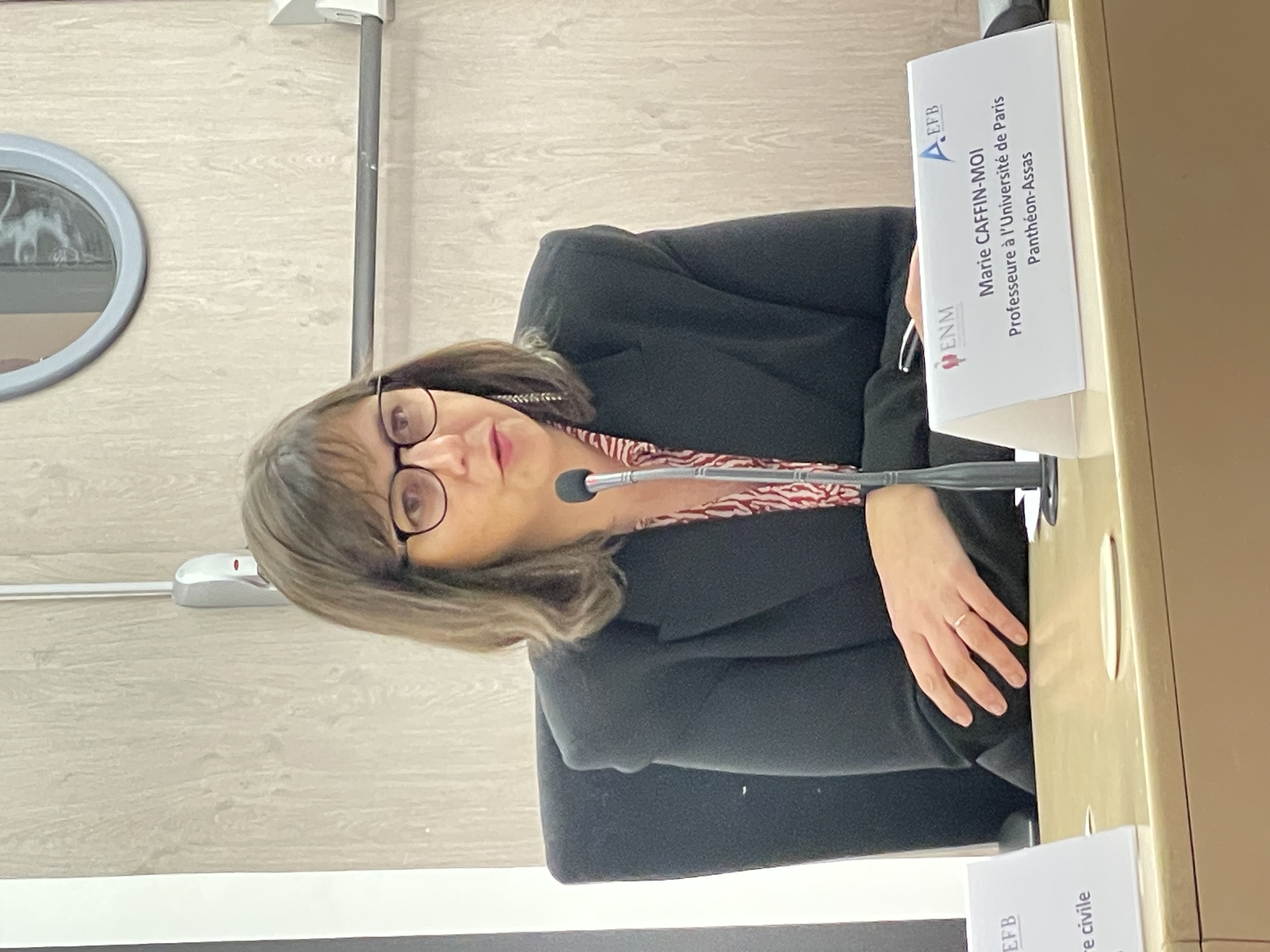
15h00-16h00. L’imprégnation des branches du droit par les mécanismes de compliance : la répression (The impact of compliance mechanisms on branches of Law: repression), by Guillaume Beaussonie, Full Professor at Toulouse 1 Capitole University
- He stressed that by its very nature Compliance imposes a preventive regime. Everything else follows on from this, including techniques that are very difficult to reconcile with Criminal Law, such as the convention judiciaire d'intérêt public - CJIP (French Judicial Public Interest Agreement), which the speaker felt was so far removed from the principles of Criminal Law that it was no longer a Criminal Law technique.
- So, to achieve efficacy, the watchword of Compliance, people will be punished several times for the same thing, through criminal and administrative sanctions, but also through the civil sanctions that are developing. However, things need to be named, as the ECHR does with "criminal matters" and the Conseil constitutionnel (French Constitutional Council) with the "sanctions ayant le caractère d'une punition" ("sanctions having the nature of a punishment").
- However, in the repression of compliance, a new concept of personality is developing and, whereas Criminal Law has a risk prevention dimension, the power of compliance, which is combined with Criminal Law, is transforming it. This is particularly true of the CJIP, which is not a punishment. Cumulative penalties are also being introduced, and the ne bis in idem principle is losing ground in case law. At the same time, the judge is becoming virtually absent from this repression of Compliance.
🌐consult the report of this speech made by Marie-Anne Frison-Roche on LinkedIn, which links to a general presentation of the event, which in turn links to the reports of each speech (in French)
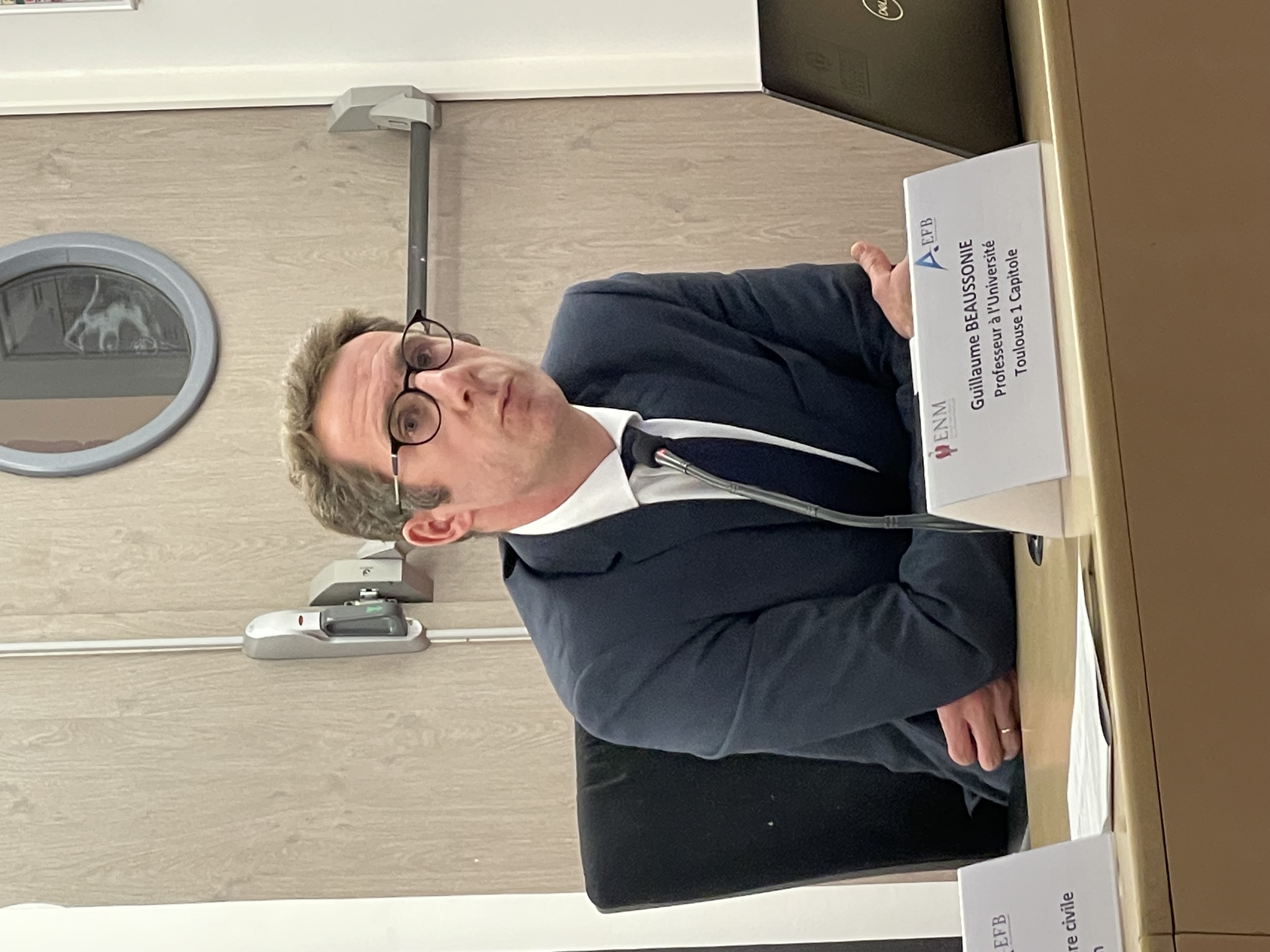
16h00-16h30. Pause (Break)
16h30 -17h45. Rapports du droit de la compliance avec les frontières : extraterritorialité et maux systémiques (Compliance Law and borders: extraterritoriality and systemic issues), by Jean-Baptiste Racine, Full Professor at Paris Panthéon-Assas University and Jean-Christophe Roda, Full Professor at Jean-Moulin Lyon 3 University
- Jean-Baptiste Racine began by pointing out that, in a classical conception of sovereignty, International Law, both public and private, presupposes borders and guardianship. As a result, Compliance mechanisms, in particular international embargoes and sanctions, because of their notorious extraterritoriality, are seen as exceptions to, or even attacks on, this branch of Law. This is often how US sanctions are presented in legal terms.
- However, in a less traditional conception, particularly when it comes to associating a global scope to ex ante technical systems with Monumental Goals, notably in the area of climate change, going beyond borders seems on the contrary to be a necessity. This can be done through the tools of International Law, which comes up against obstacles to implementation. It can be done through the tools of Compliance Law, which are on the one hand contracts and on the other commitments and flexible standards adopted by companies that produce more results.
- As a result, systemic issues such as corruption, money laundering, climate change and human and animal abuse are finding more solutions thanks to Compliance Law, which is by nature "beyond borders".
- Jean-Christophe Roda expands on this point with practical examples. He shows the importance of the courts and the regulatory authorities, since governments tend to retain a traditional view of their power and extraterritoriality. Through the use of Compliance Law, companies are expressly invited to coordinate with each other, including competitors. For companies in the international arena, this implies both new margins for manoeuvre, but also burdens, particularly of an evidential nature. Indeed, as the speaker pointed out in particular with regard to the American requirements for European companies, companies must prepare their diligences in order to be able to respond to requests for "documentary production".
- The speaker underlined the practical hypotheses of "abuse of compliance". It seems to him that this occurs when there is a "conflict of secrets", particularly between European and American regulations or case law, or when the French blocking statute prohibits what American law requires... The same applies when Compliance Law requires contractual clauses to fulfil legal Compliance obligations which result in significant imbalances against which other laws intervene.
- It will be up to the judge, in particular by applying the principle of proportionality and because it is in their nature to maintain a balance, to resolve these objectively abusive situations.
🌐consult the report of the speech of Jean-Baptiste Racine made by Marie-Anne Frison-Roche on LinkedIn, which links to a general presentation of the event, which in turn links to the reports of each speech (in French)
🌐consult the report of the speech of Jean-Christophe Roda made by Marie-Anne Frison-Roche on LinkedIn, which links to a general presentation of the event, which in turn links to the reports of each speech (in French)
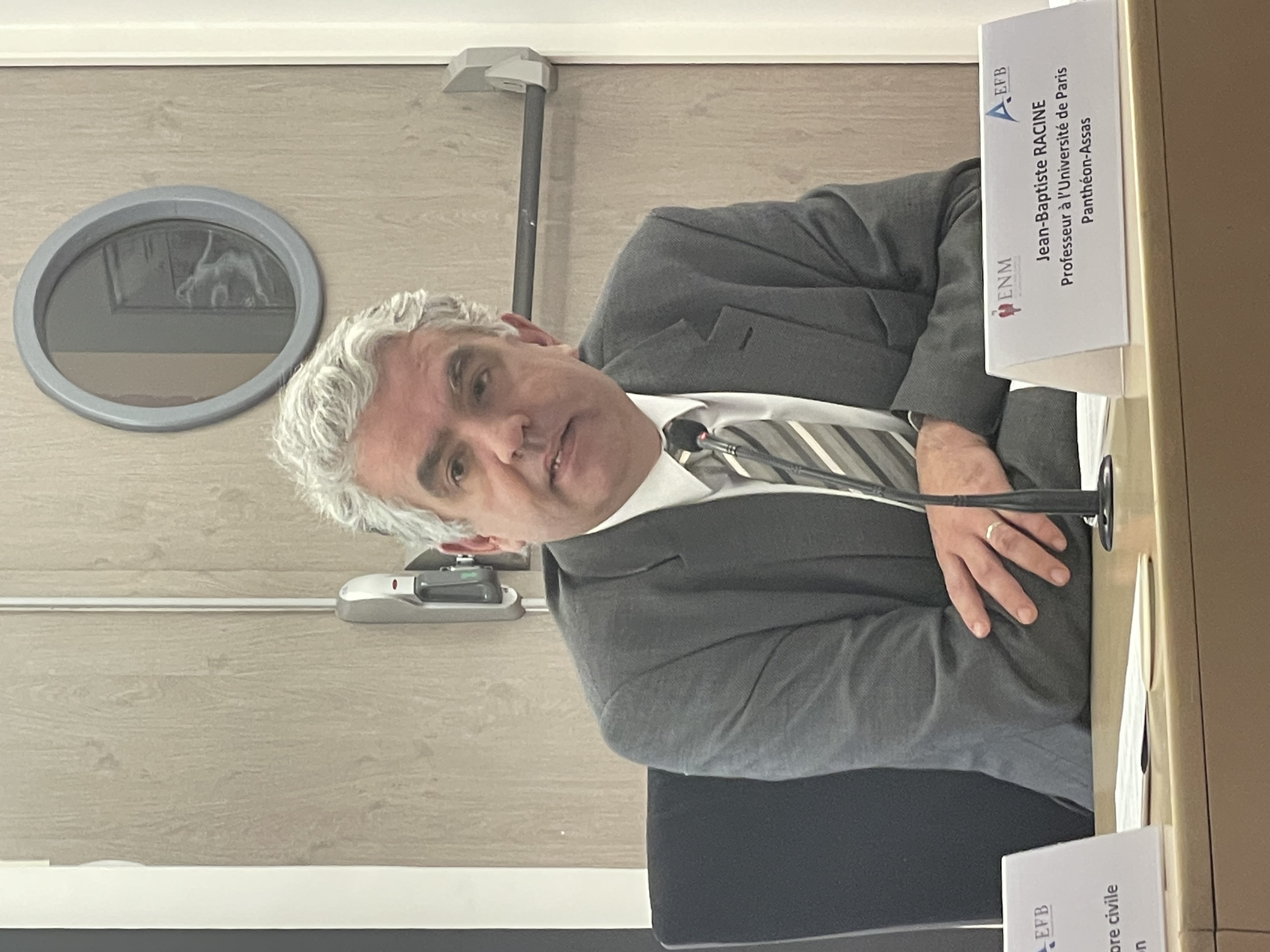
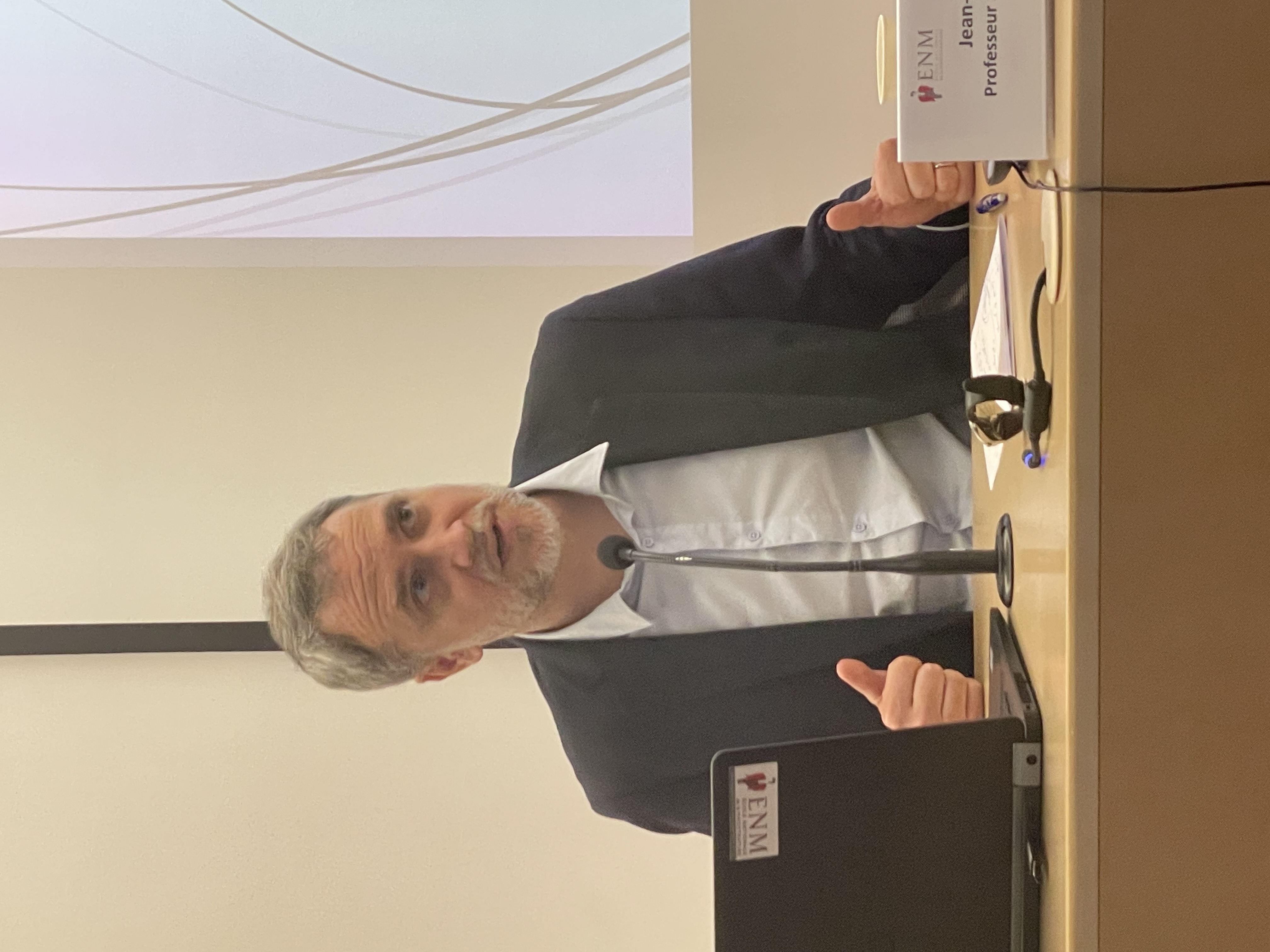
2 February 2024
CE QUI EST EN TRAIN DE NAÎTRE PAR LE DROIT DE LA COMPLIANCE
(WHAT IS EMERGING THROUGH COMPLIANCE LAW)
09h00-10h00. Les enjeux présents à venir de l’articulation des principes de procédure civile et commerciale avec la logique de compliance (The present and future challenges of linking the principles of civil and commercial procedure with the logic of compliance), by Thibault Goujon-Bethan, Full Professor at Jean Moulin Lyon 3 University
- He showed that the Code de procédure civile (French Civil Procedure Code), because it is exceptionally well conceived and directed, can respond to the scale of the transformation that Compliance Law is bringing about.
- Compliance Law is normatively anchored in its Monumental Goals: these are brought as such before the judge in "systemic cases".
- Yet, the French Civil Procedure Code distinguishes, and the work of the Code's authors as well as that of academic writers shows, that a distinction must be made between a dispute and a conflict. In fact, in a "systemic case" such as Compliance Law necessarily involves (climate, protection of Internet users, effective equality of human beings, sustainability of banking systems, etc.) it is the parties who are in dispute, whereas the conflict embraces the systems themselves and other entities.
- The procedure must integrate not only the dispute but also the conflict. This means dealing not only with the dispute, but also with the conflict, which does not necessarily end with the dispute, and does not find the same solutions as those called for by the dispute. It is particularly in this latter perspective, essentially in a "Systemic Cause of Compliance" procedure, that the techniques of mediation, amicus curiae, an ex ante judge, etc., are essential. They are available in the articles of the French Civil Procedure Code: all that is needed is for the judges, who understand what "Systemic Compliance Cases" are, to make use of them.
🌐consult the report of this speech made by Marie-Anne Frison-Roche on LinkedIn, which links to a general presentation of the event, which in turn links to the reports of each speech (in French)
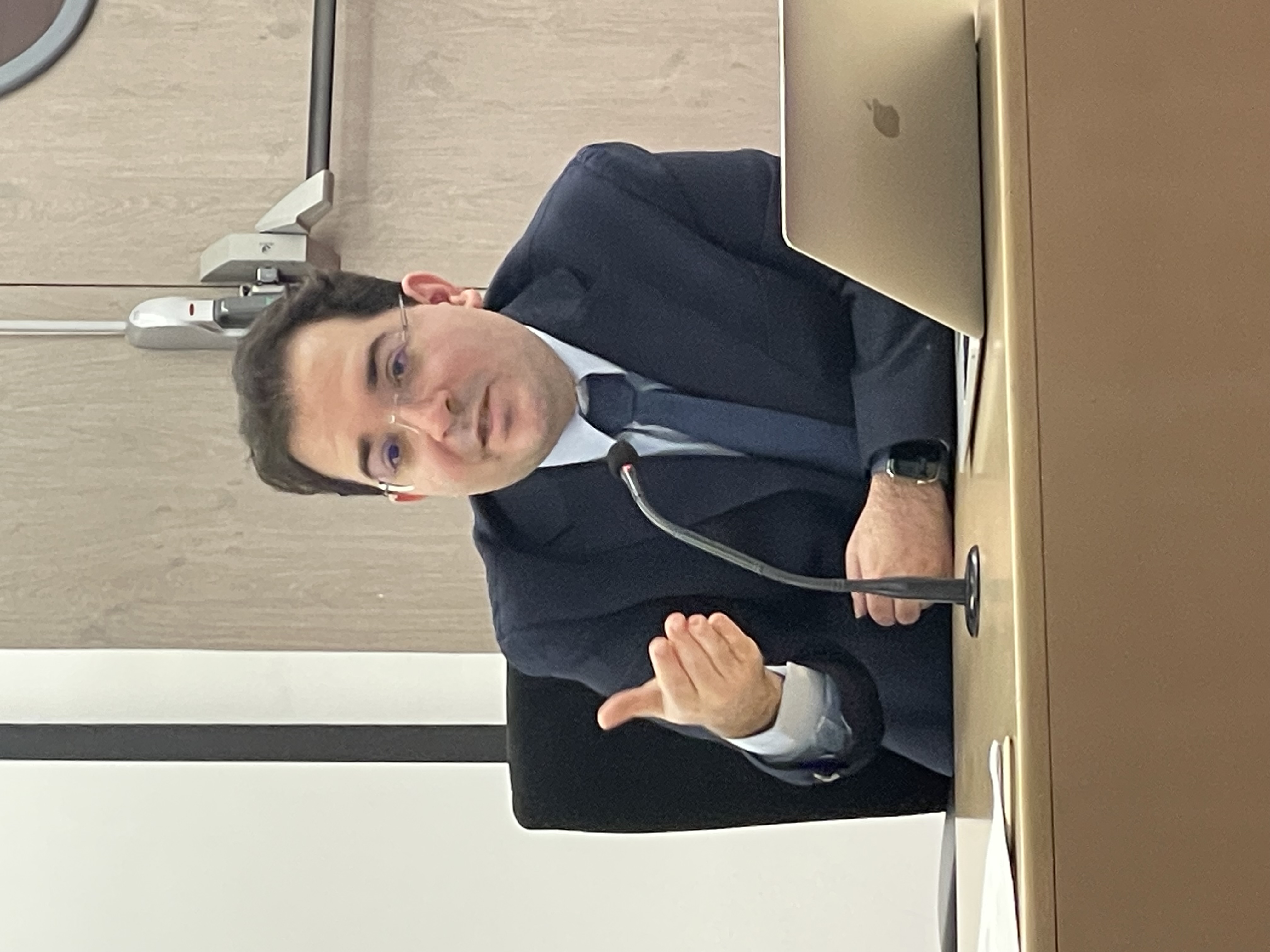
Premier débat : Ce qui est attendu des entreprises en matière de Vigilance, pointe avancée de la Compliance
(First debate: What companies are expected to do in terms of Vigilance, the advanced point of Compliance)
10h00-11h00. Première discussion entre une entreprise et une partie prenante (First discussion between a company and a stakeholder), Jean-Benoît Devauges, Directeur Juridique, Ethique et Gouvernance des entreprises (Legal, Ethics and enterprises governance Director), MEDEF and Lucie Chatelain, Advocacy and Litigation Manager - Civil Liability of Parent Companies, Sherpa
- This first debate, moderated by François Ancel, is between a business representative and an NGO representative.
- Jean-Benoit Devauges explains that companies are very different in size, structure and activities. As a result, the current and future complexity of regulations is raising fears, particularly for SMEs, which do not know how to incorporate such requirements, particularly plans, mapping, etc., which were designed for very large companies.
- Lucie Chatelain takes up concrete cases, in particular the "jasmine case" involving children forced to work in indecent conditions, a situation for which companies must be held accountable.
- Asked what they both "expect from the judge", Jean-Benoit Devauges expressed the hope that judges would be more familiar with the workings and activities of companies, and their diversity, in order to apply the law to them, while Lucie Chatelain hoped that judges would help victims and ensure that companies do not go unpunished when they cause damage by taking advantage of globalisation, particularly through value chains, a request made by associations such as Sherpa.
🌐consult the report of this discussion made by Marie-Anne Frison-Roche on LinkedIn, which links to a general presentation of the event, which in turn links to the reports of each speech (in French)
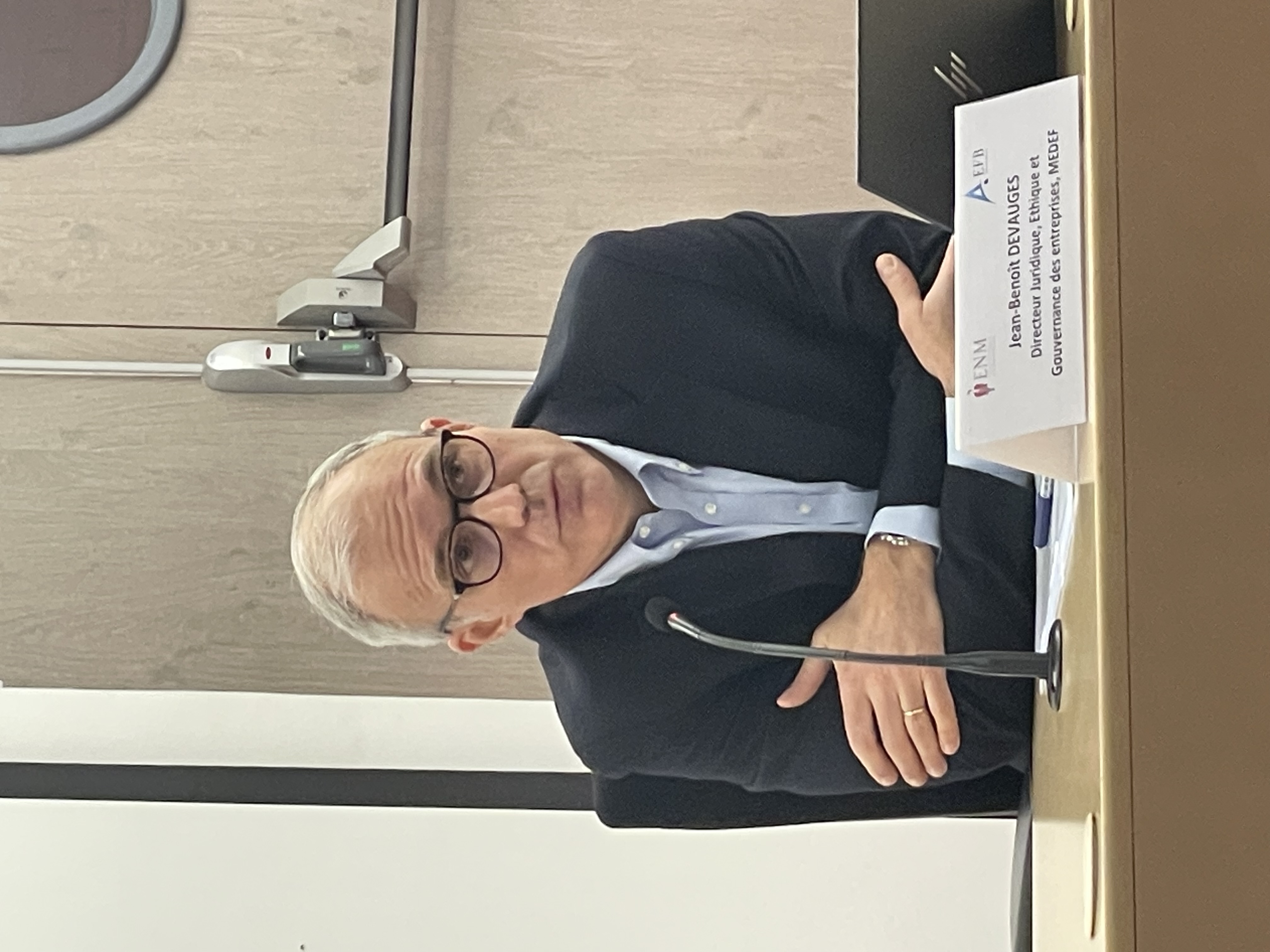
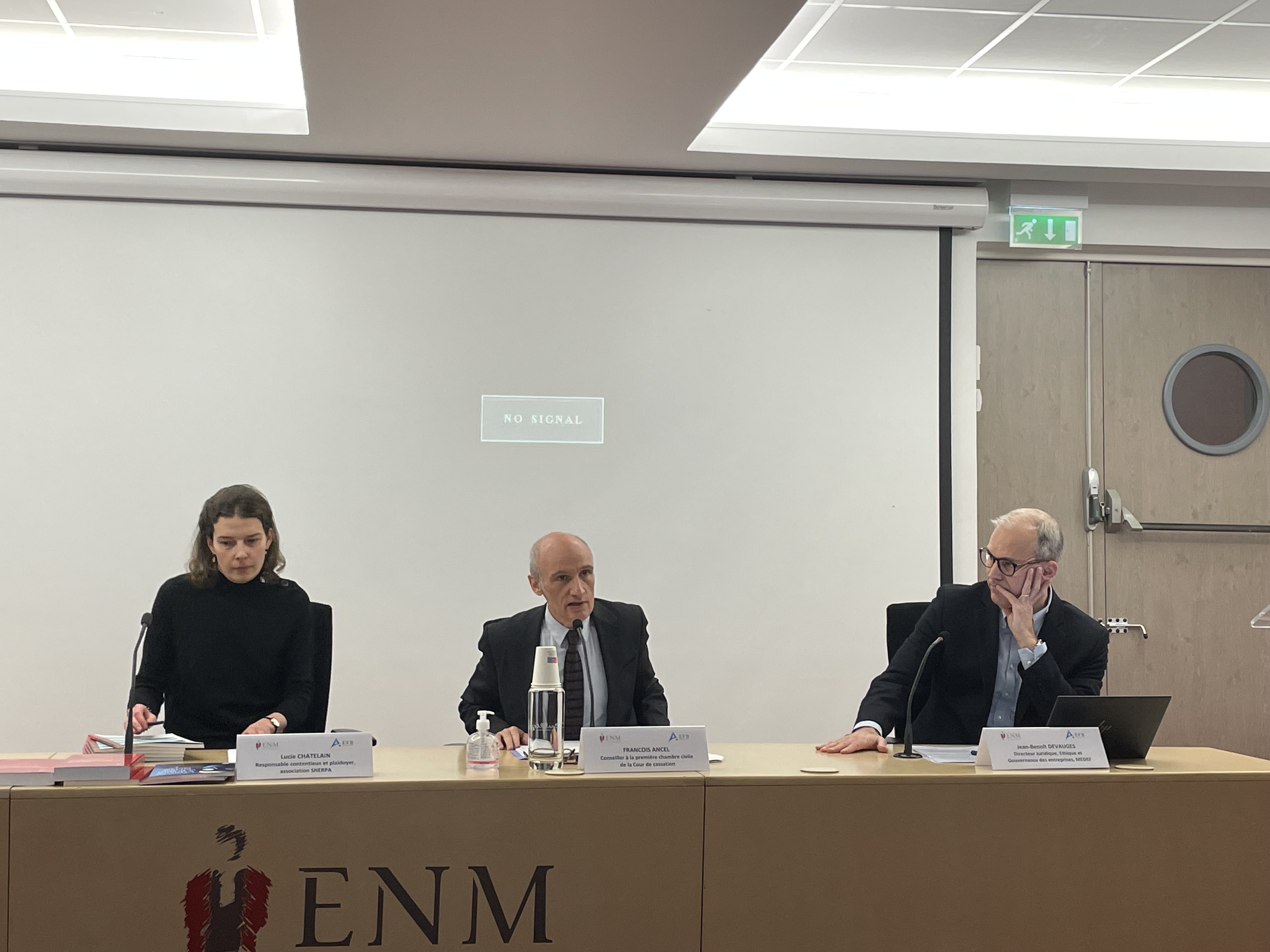
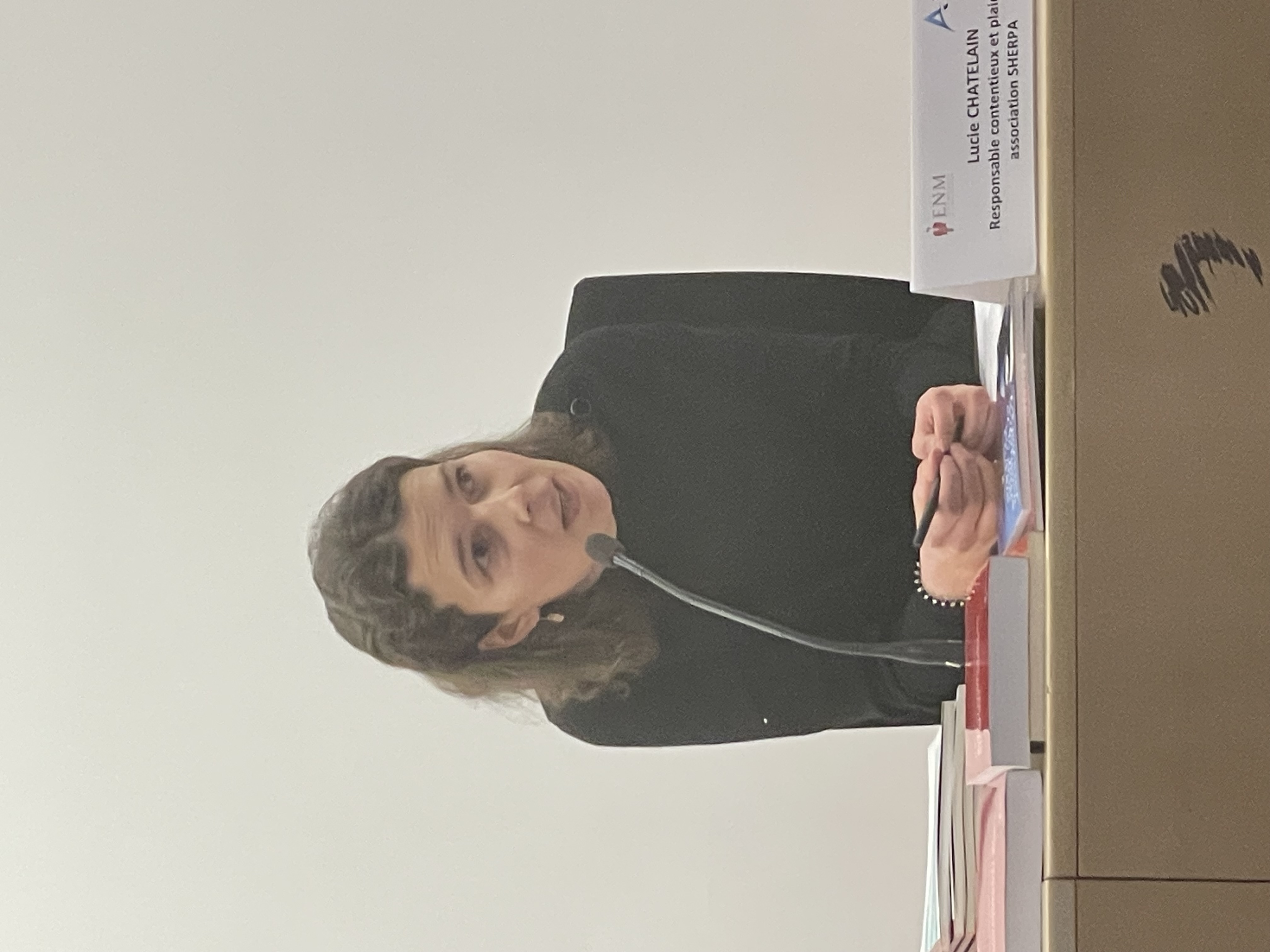
11h00-11h15. Pause (Break)
11h15-12h30. Seconde discussion entre des magistrats et un avocat (Second discussion between magistrates and a lawyer), Malik Chapuis, Judge at the Tribunal judiciaire de Paris (Paris First Instance Civil Court) and Arnaud Gossement, Attorney at the Paris Bar, Partner at Gossement Avocats
- I have great pleasure and interest in moderating a debate between Arnaud Gossement and Malik Chapuis, on how lawyers and judges can give concrete expression to the Monumental Goals in which Compliance Law is anchored, calling for a finalistic application.
- Arnaud Gossement highlights the central role of the judge, particularly the judge of first instance, in climate disputes. To do this, he drew on a decision by an administrative judge to bring a case to trial and on the decision handed down by the Vice-President of the Tribunal judiciaire de Paris (Paris First Instance Civil Court) in the so-called Total Uganda case on 28 February 2023, arguing that associations have every interest in this type of jurisdictional decision, not only in what they decide but also in expressing their reasons for doing so.
- In response, Malik Chapuis develops the role of the Judge, which is developing in Compliance Law, particularly in the design of the procedure. Using concrete cases, he shows how dialogue with lawyers and mediation between the parties can help to find solutions in this type of Vigilance litigation.
🌐consult the report of this discussion made by Marie-Anne Frison-Roche on LinkedIn, which links to a general presentation of the event, which in turn links to the reports of each speech (in French)
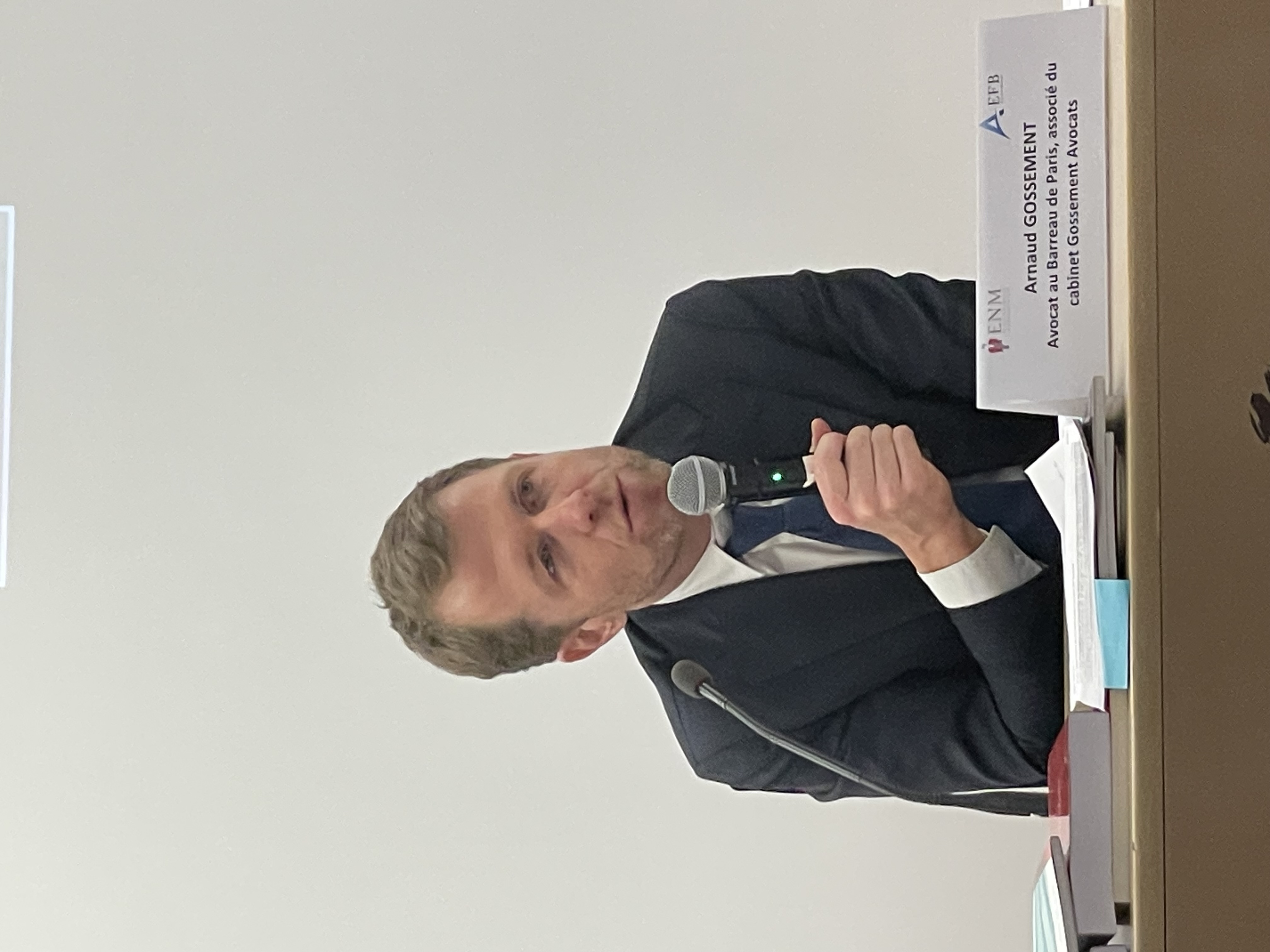
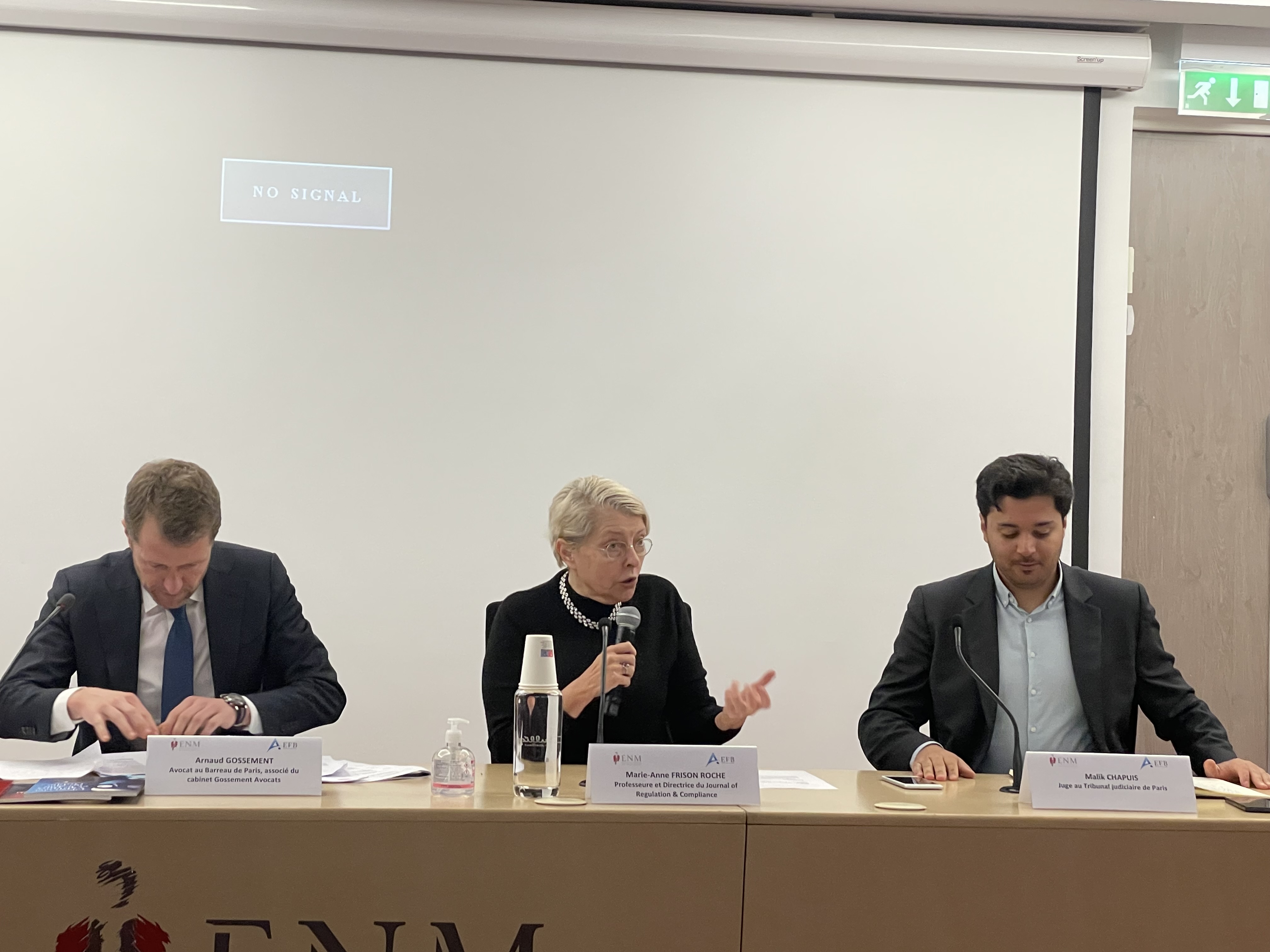
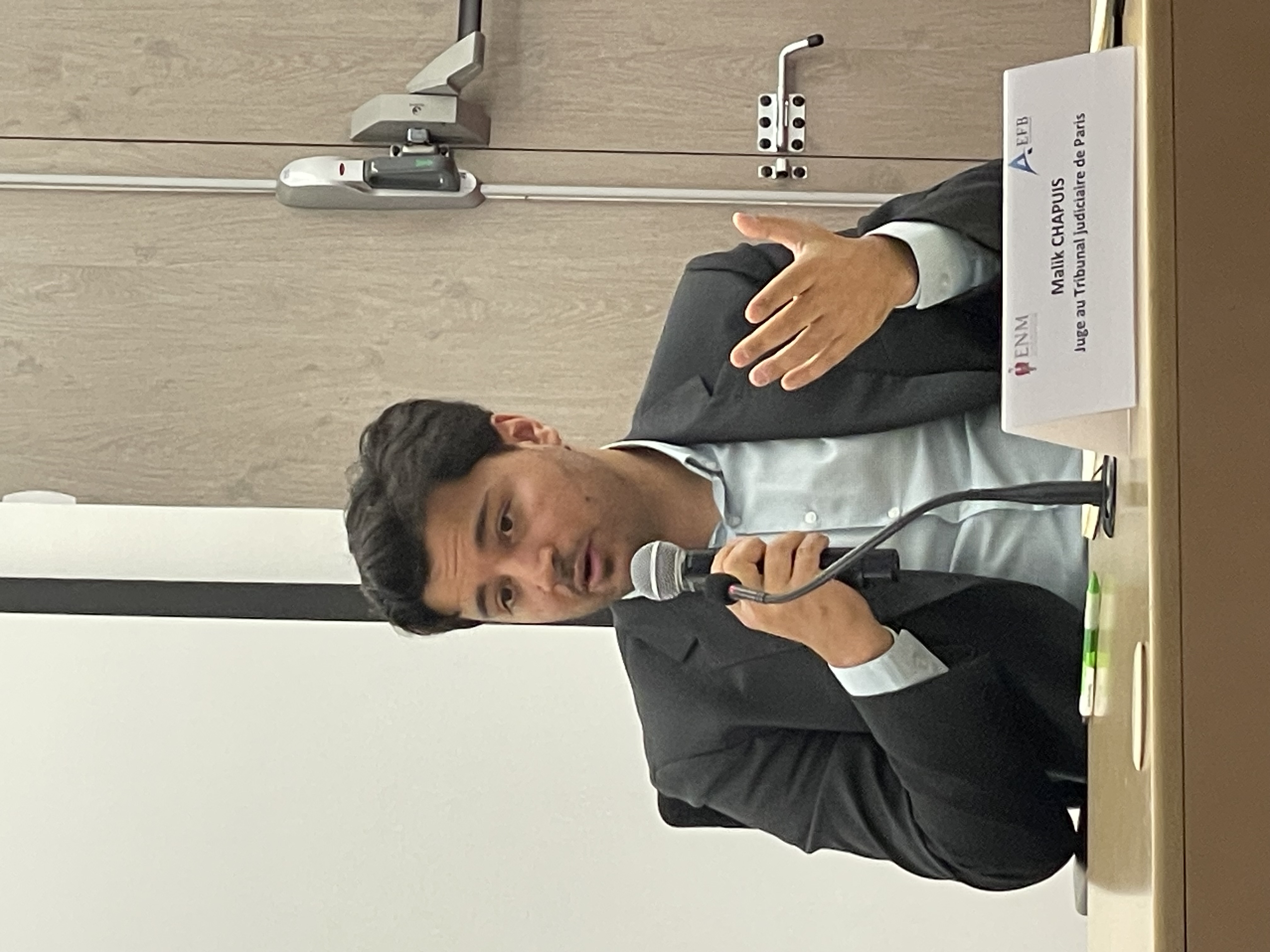
12h30-14h00. Pause déjeuner (Lunch break)
Second débat : La pratique de chacun dans les techniques répressives de la compliance
(Second debate: The practice of each in the repressive techniques of compliance)
14h00-15h00. Première discussion sur le rôle de l’Agence française anticorruption - AFA (First discussion on the role of the French Anti-Corruption Agency - AFA), Isabelle Jegouzo, Director of the AFA and Christophe Ingrain, Attorney at the Paris Bar, Partner at Darrois Villey Maillot Brochier
- In a debate moderated by François Ancel, Isabelle Jegouzo and Christophe Ingrain discussed the practical ways in which the supervisory authority and companies, through the advise and through their advises, can act together to fight corruption with efficacy.
- In the first part of the debate, Isabelle Jegouzo explained why France set up the AFA under the so-called "Sapin 2" law, how it is constituted, how it works and the major issues and dossiers on which the Agency is currently working!
- In response, Christophe Ingrain explained how, in practical terms, he advises major groups faced with the AFA on how to make it an ally rather than an enemy, by weighing up their best long-term interests, particularly with a view to a CJIP.
- Lui répondant, Christophe Ingrain a exposé comment concrètement il conseille les grands groupes confrontés à l'AFA afin d'agir pour s'en faire un allié et non pas un ennemi, en mesurant leur intérêt bien compris à long terme, notamment dans la perspective d'une convention judiciaire d'intérêt public - CJIP (French Judicial Public Interest Agreement).
- The relationship between the companies, the AFA, the Parquet national financier (French National Financial Prosecutor's Office) and companies in the context of a CJIP has thus begun to be described. It will be taken up again in the following discussion.
🌐consult the report of this discussion made by Marie-Anne Frison-Roche on LinkedIn, which links to a general presentation of the event, which in turn links to the reports of each speech (in French)
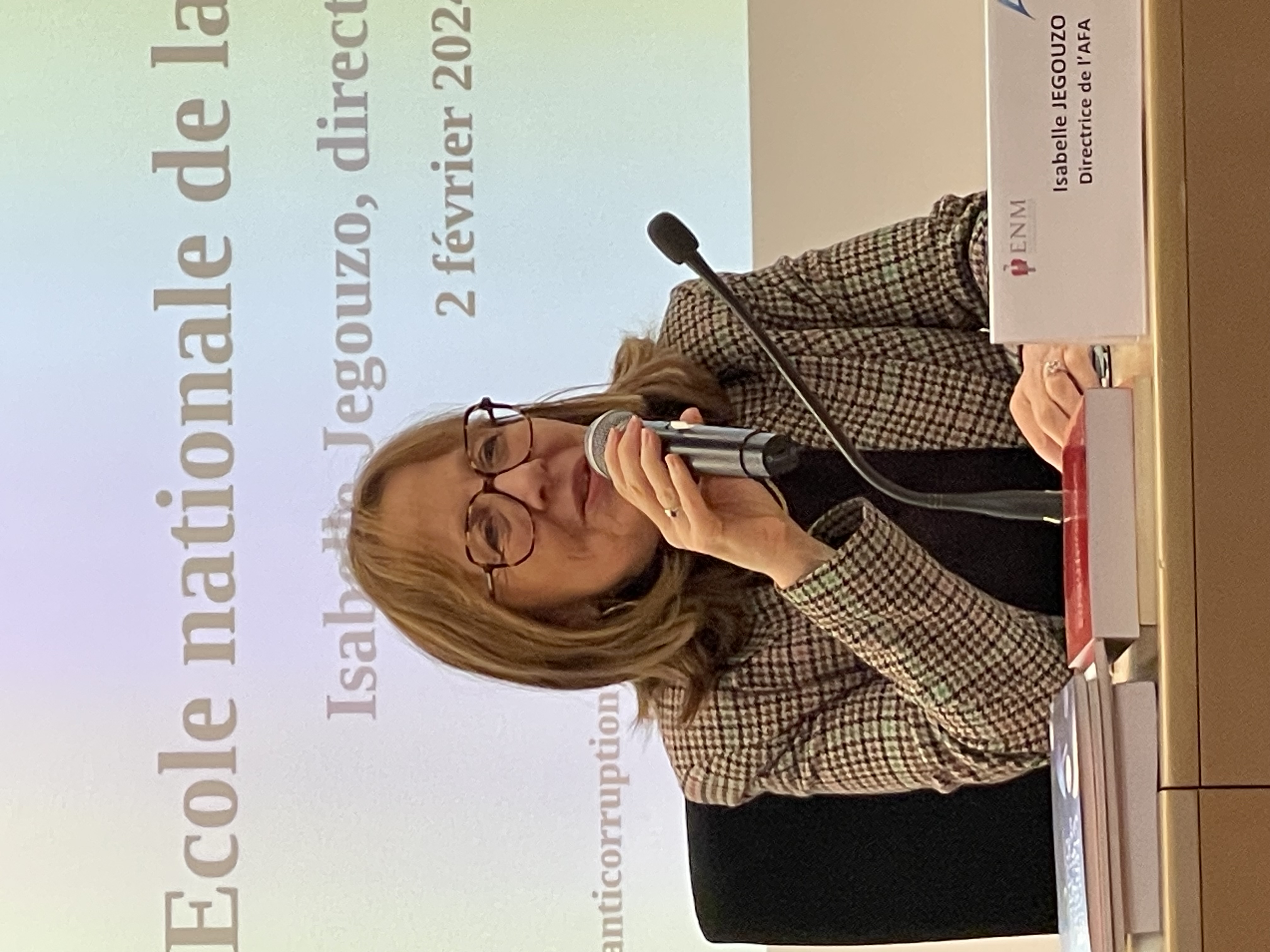
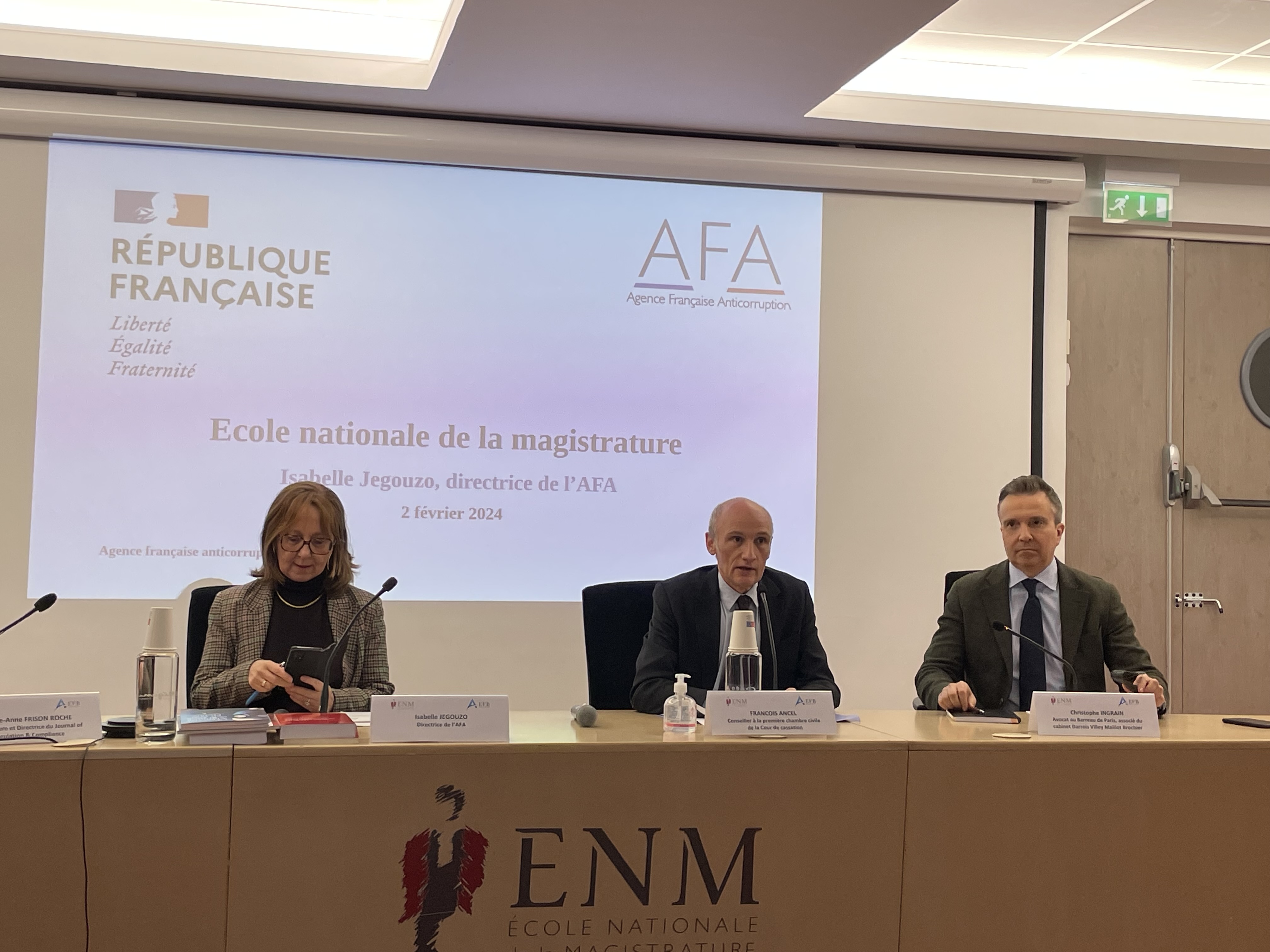
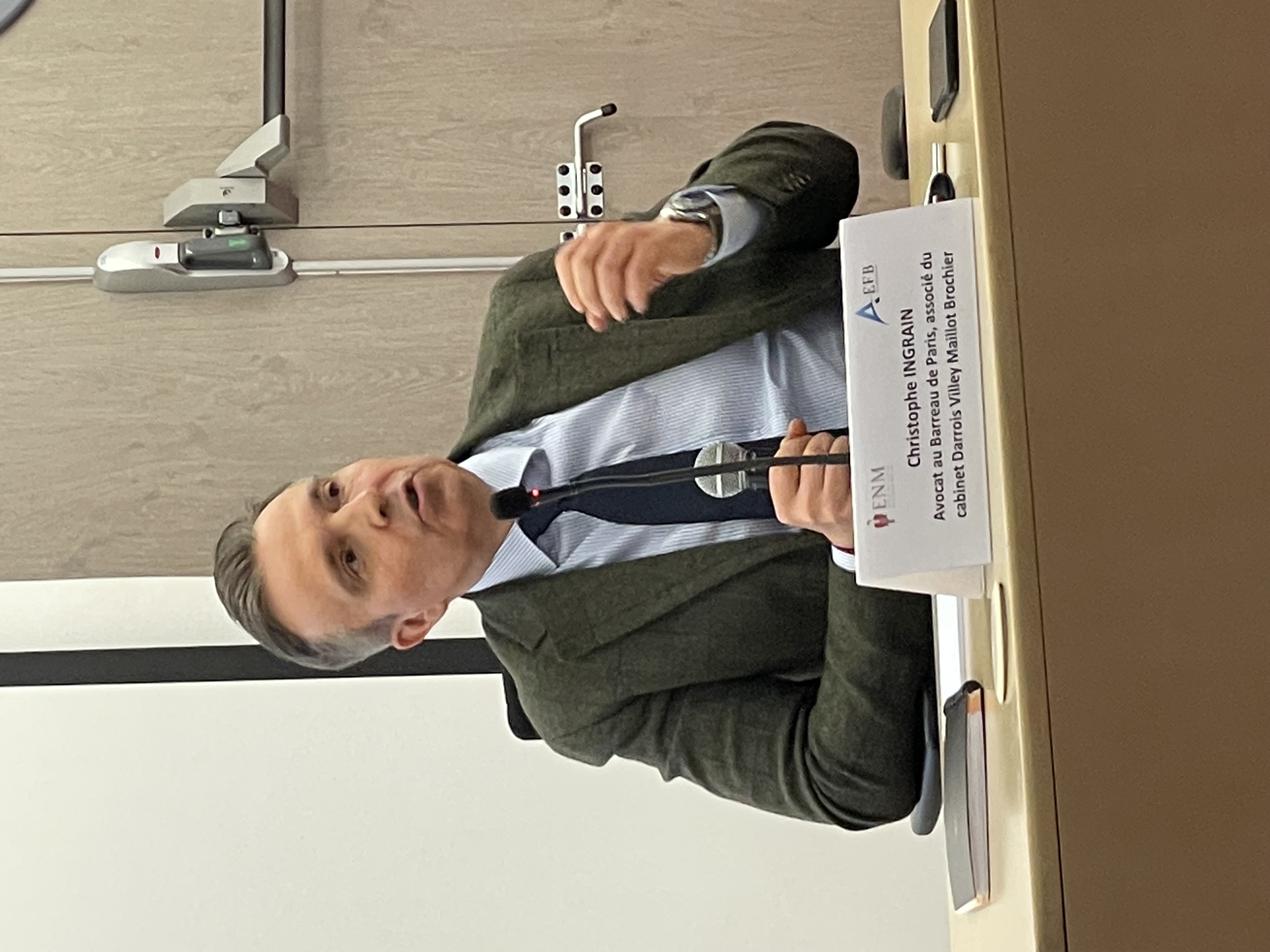
15h00-16h00. Seconde discussion sur le fonctionnement de la CJIP (Second discussion on the functioning of the French Judicial Public Interest Agreement), Jacques Boulard, Premier Président de la Cour d’appel de Paris (First President of the Paris Court of Appeal), Jérôme Simon, 1er Vice-Procureur Financier (First Financial Vice-Prosecutor) and Thomas Baudesson, Attorney at the Paris Bar, Partner at Clifford Chance
- In a debate that I had the pleasure of moderating, through the three speakers, Thomas Baudesson, Jérôme Simon and Jacques Boulard, we benefited from the discussion between these three key figures in the convention judiciaire d'intérêt public - CJIP (French Judicial Public Interest Agreement): the lawyer, who represents the interests of the company; the prosecutor, who seeks the interests of the State; and the judge, who must control the compliance process that is this agreement.
- Thomas Baudesson traces the development of the Airbus CJIP, in particular its international dimension and the role played by internal investigations.
- Echoing Isabelle Jegouzo's presentation in the previous debate, Jérôme Simon recalls the reasons why France adopted this instrument of negotiated justice, in order to use it in particular vis-à-vis the U.S. Department of Justice, and the concrete successes that the Parquet national financier - PNF (French National Financial Prosecutor's Office) can now boast, notably for the benefit of public finances.
- Jacques Boulard points out that this criminal mechanism cannot do without a judge, which takes the technical form not only of the Validation Order, but also of the procedure, in particular the hearing during which an adversarial debate is held, during which the victims can express their views.
- In a discussion between the speakers and then with the audience, the questions that are open today were addressed, in particular the place of victims and the subjects that could be the object of a CJIP, in particular breaches of probity, now environmental offences, and perhaps in the future other systematically fraudulent behaviours. The question of protected interests and the transformation of Criminal Law and the necessary presence of the judge are also discussed, particularly in the light of the critical presentation made earlier by Guillaume Beaussonie.
🌐consult the report of this discussion made by Marie-Anne Frison-Roche on LinkedIn, which links to a general presentation of the event, which in turn links to the reports of each speech (in French)
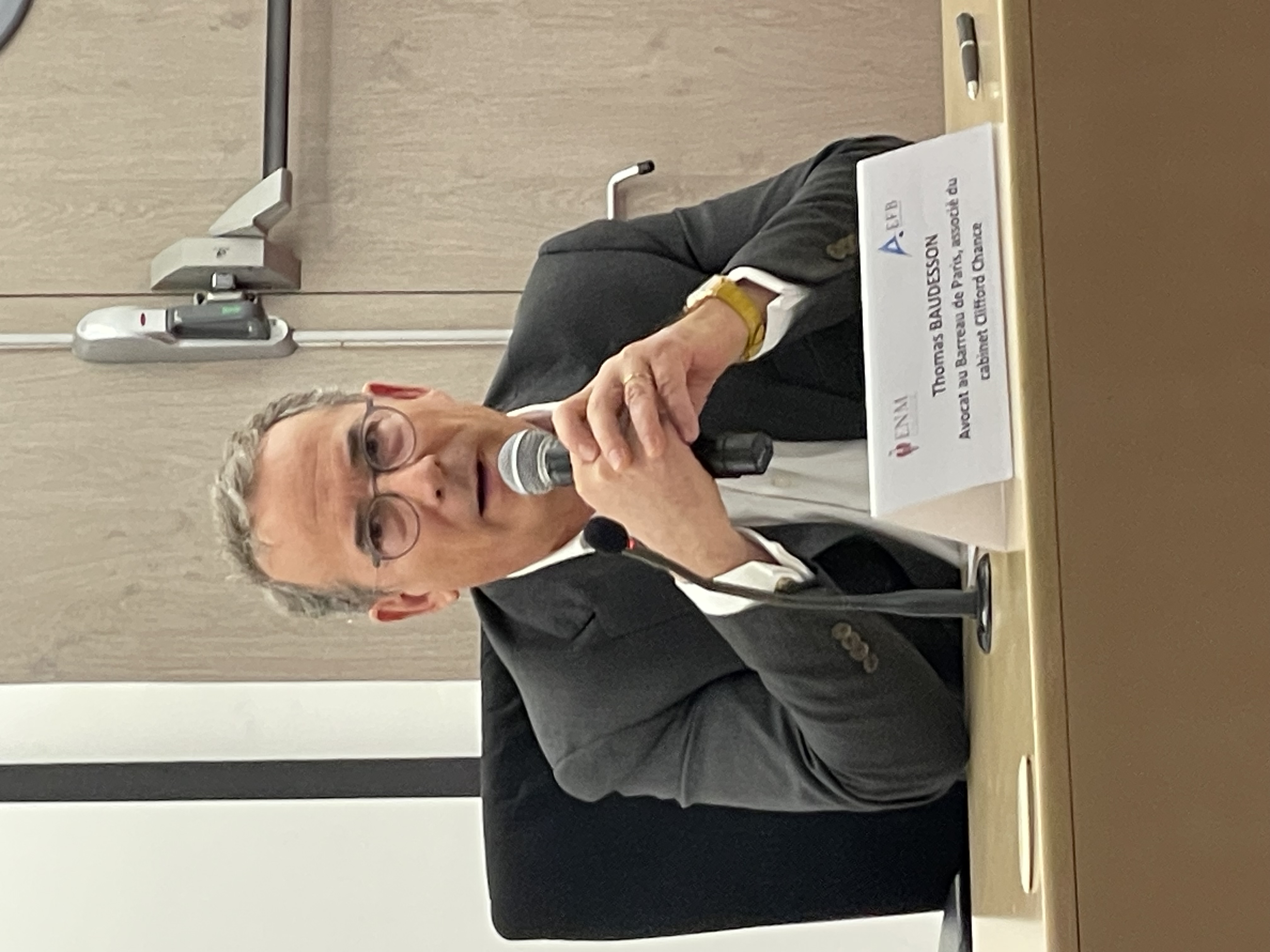
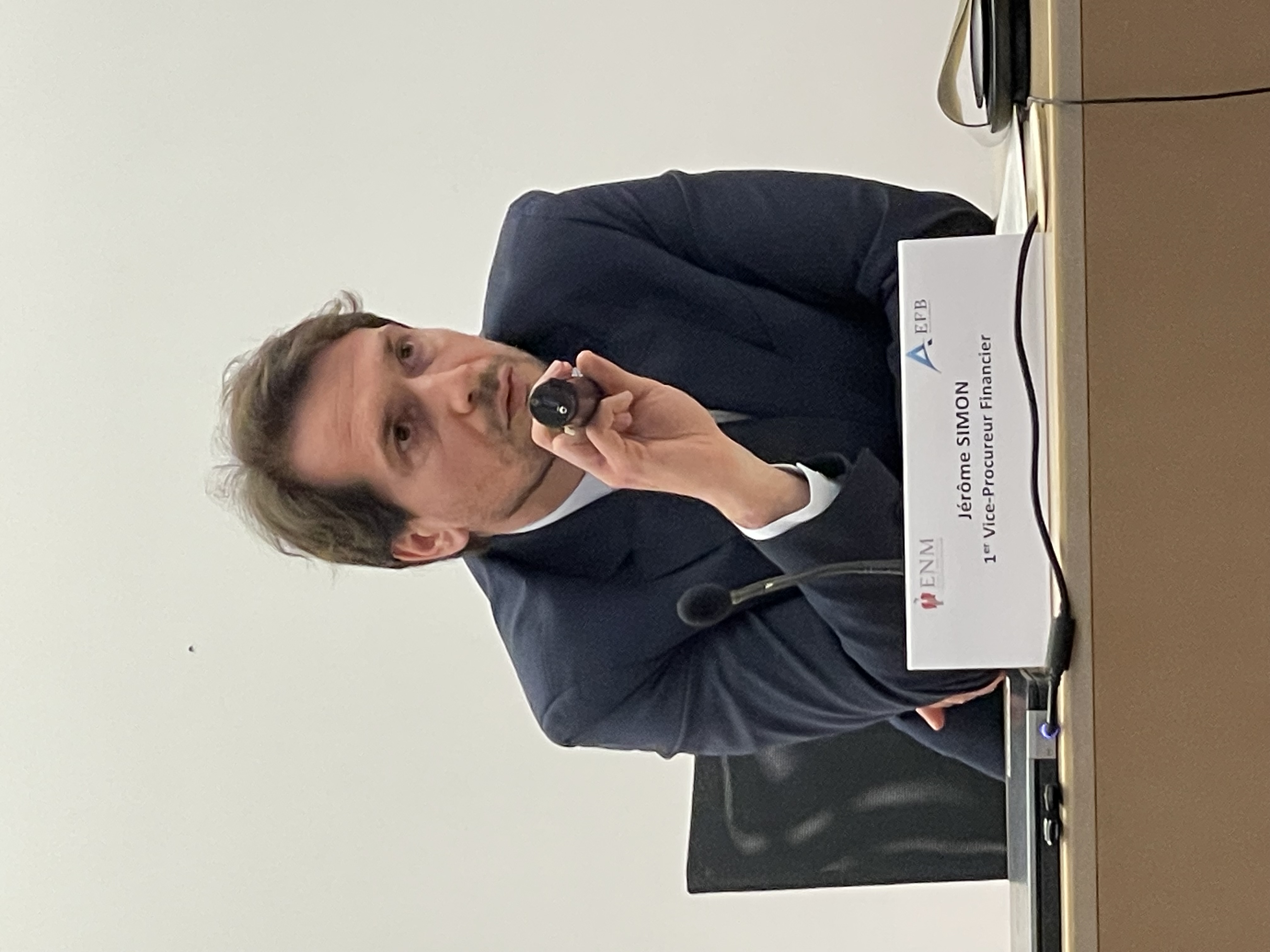
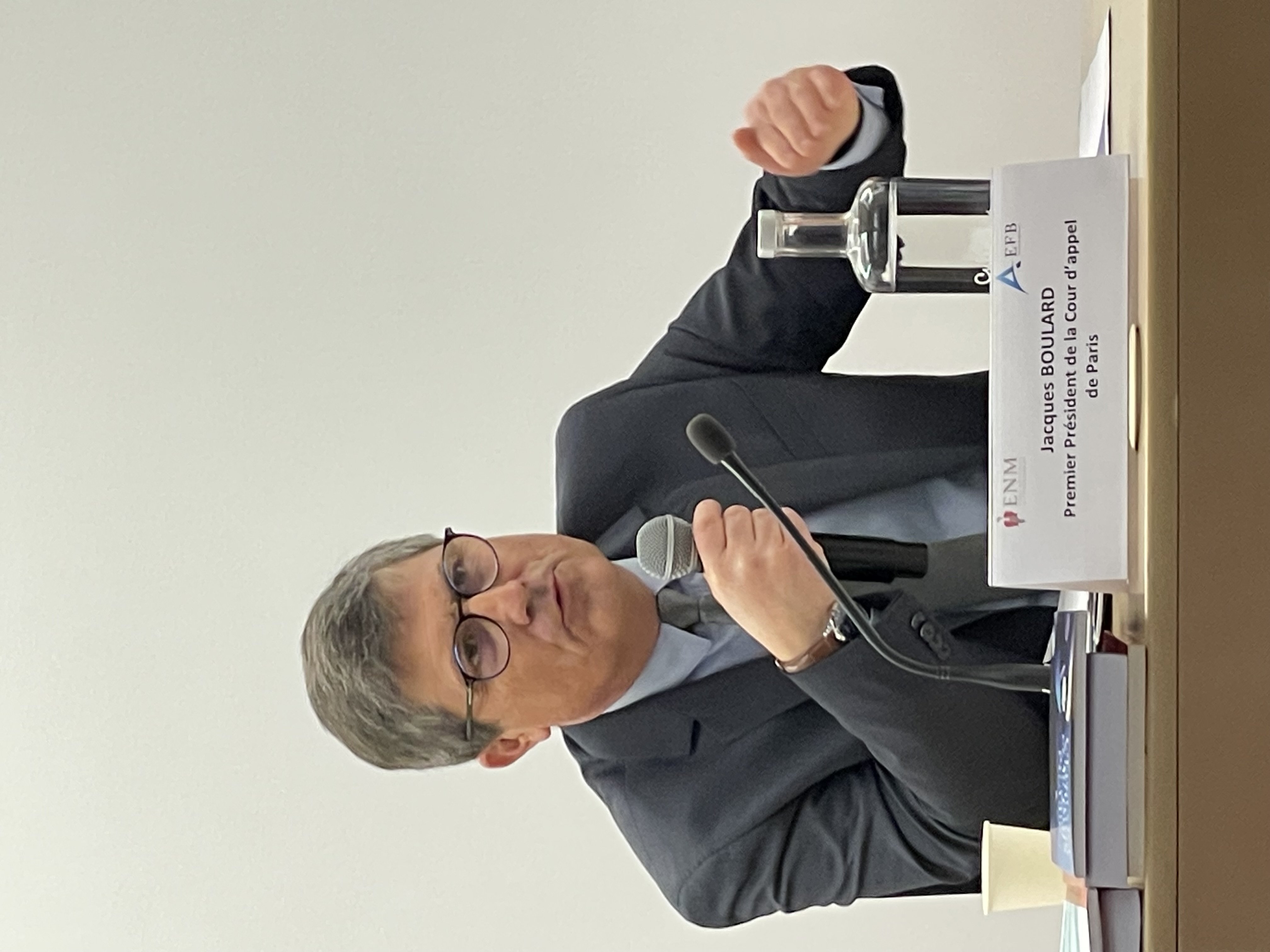
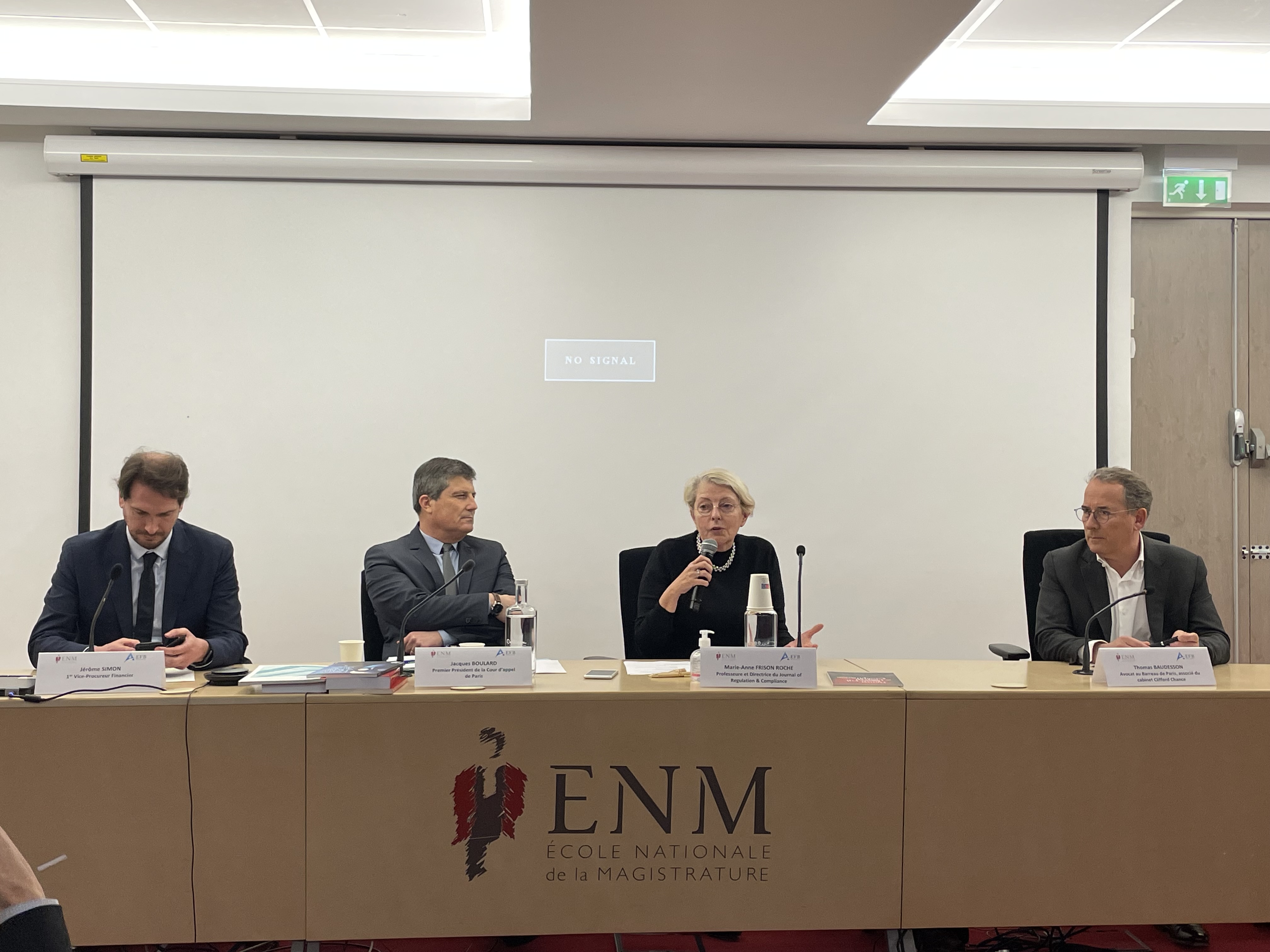
16h00-16h15. Pause (Break)
16h15-17h15. La transformation du rôle de l’avocat et de l’office du juge à travers le droit de la Compliance (The transformation of the role of the lawyer and the office of the judge through Compliance Law), by François Ancel, Judge at the Première Chambre civile de la Cour de cassation (First Civil Chamber of the French Court of cassation) and Charlotte Michon, Attorney at the Paris Bar, partner at Charlotte Michon Avocat
- In a cross-presentation that I had the pleasure of moderating on the transformation of the lawyer's office and the judge's office, the floor was first given to Charlotte Michon.
- She recounted her experience of advising companies, explaining that the regulations were complicated and that it was difficult for them to apply them, but that lawyers like her could help them to do so.
- To link her speech with that of François Ancel, I took care to emphasise that by the very nature of Compliance Law, a branch of ex ante Law, the lawyer, who by nature is also present in the court, the traditional place for ex post proceedings, is therefore the natural translator of the Compliance culture that both the company and the stakeholders, both internal and external, victims and NGOs, must express before the Judge; or even with the Judge, whose office is renewed.
- François Ancel then took the floor to summarise the two-day conference, drawing in particular on Thibault Goujon-Bethan's presentation. He stressed the importance of Compliance Law, a branch of teleological Law that needs to be understood, interpreted and applied through its Monumental Goals, producing disputes that constitute systemic cases. Because he is aware of this, François Ancel proposes to transform the role of the judge, both through the procedure, which must make more room for orality, mediation, etc., and through a substantive role, by establishing a jurisprudential policy, through a dialogue between judges. This dialogue between judges is taking place in concrete cases, both between judges of the merits and the Cour de cassation (French Court of cassation), between judicial judges and administrative judges, between national judges, European judges and foreign judges. This is how judges will meet the expectations of civil society in the systemic Compliance cases brought before them.
🌐consult the report of this discussion made by Marie-Anne Frison-Roche on LinkedIn, which links to a general presentation of the event, which in turn links to the reports of each speech (in French)
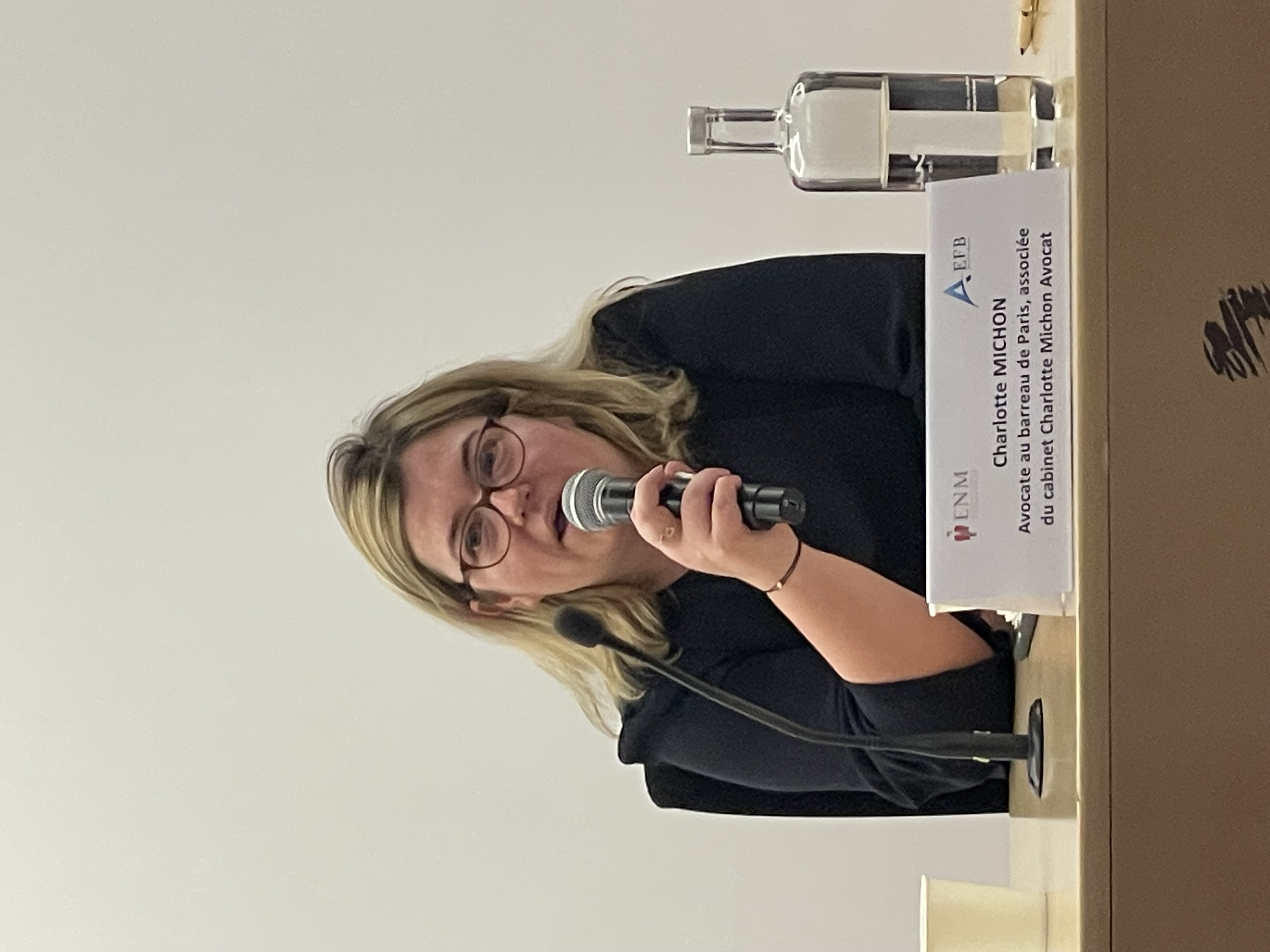
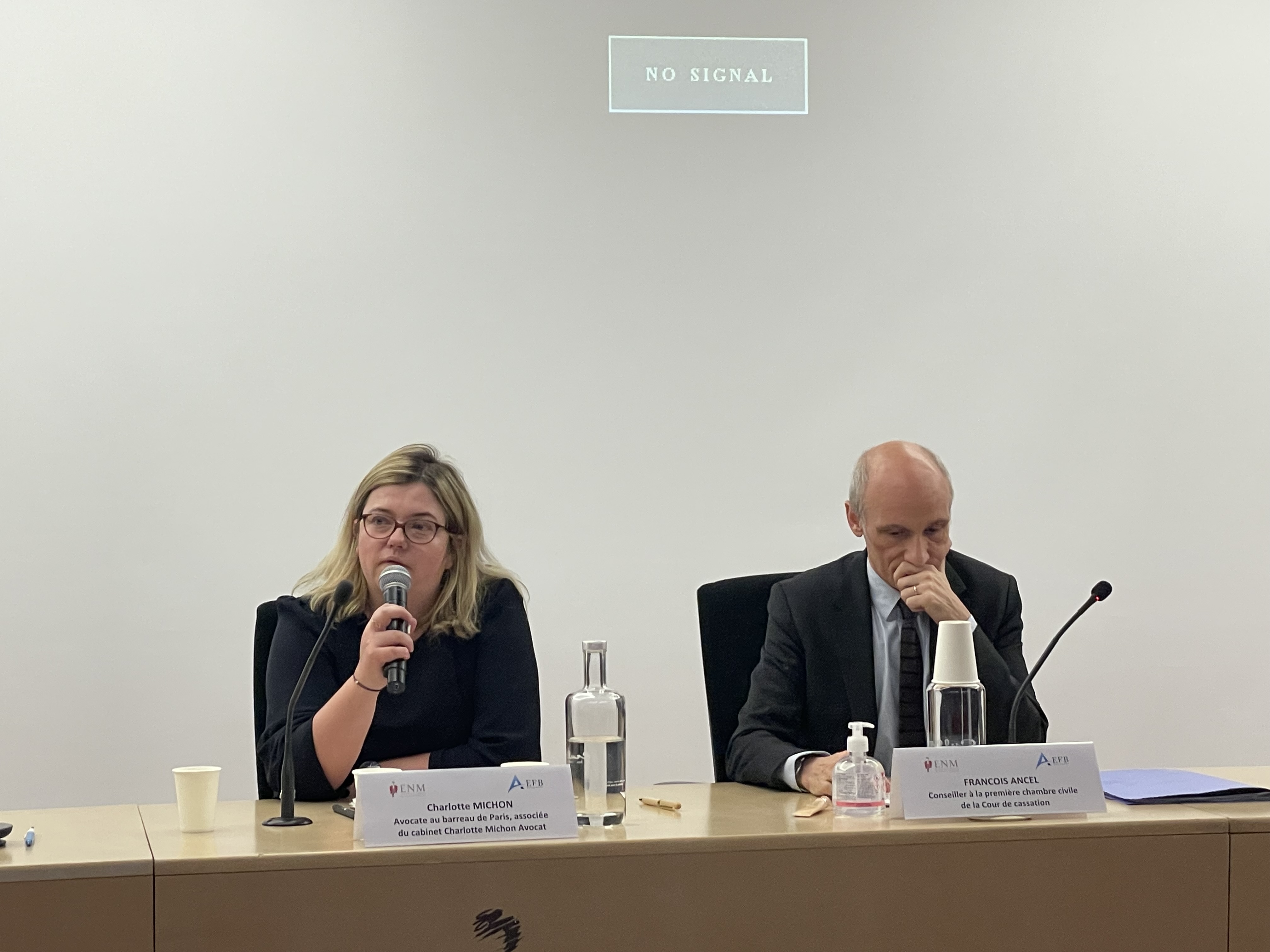
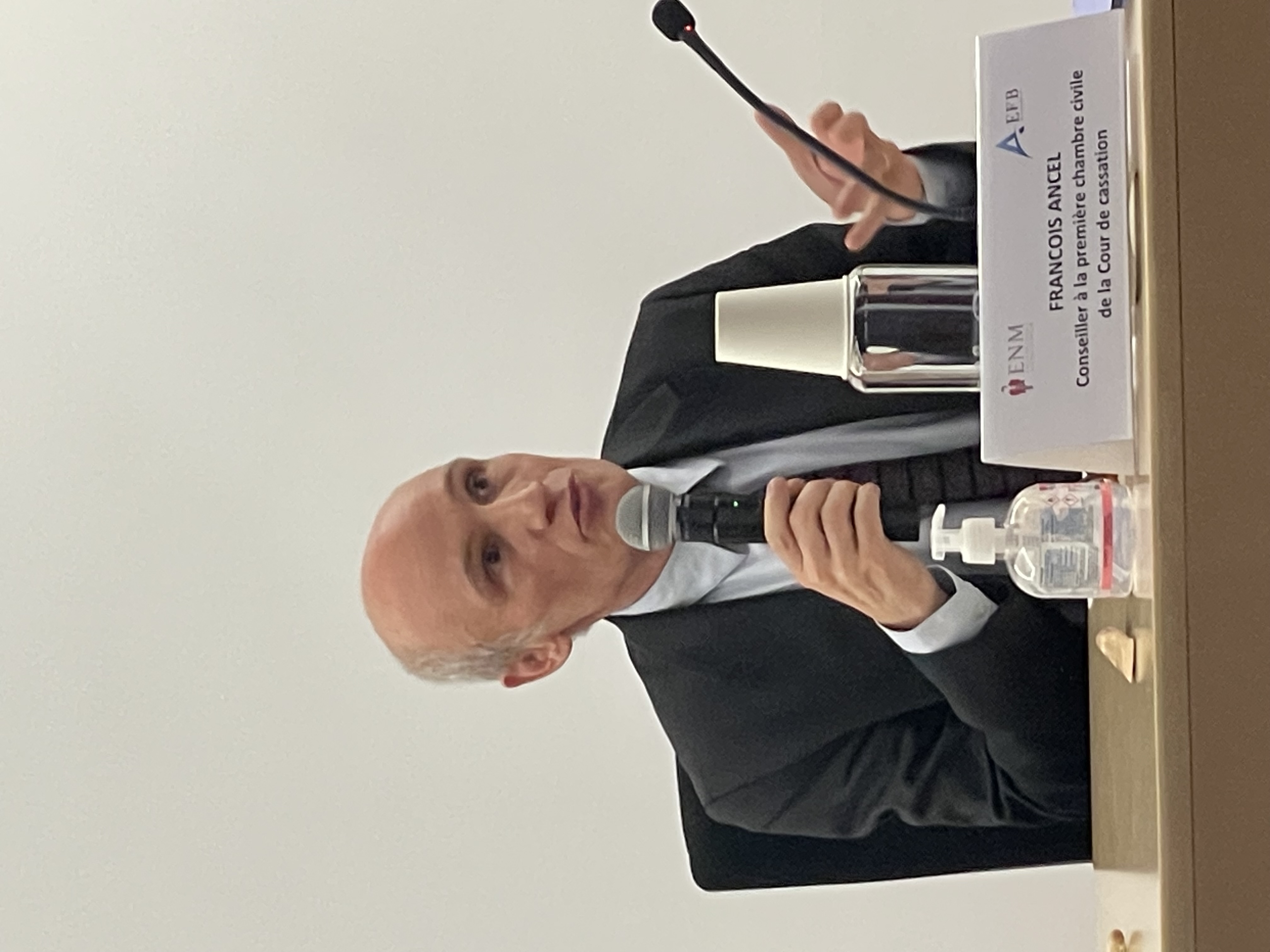
17h15-17h30. Clôture (Closing)
________
comments are disabled for this article